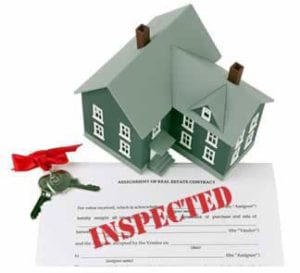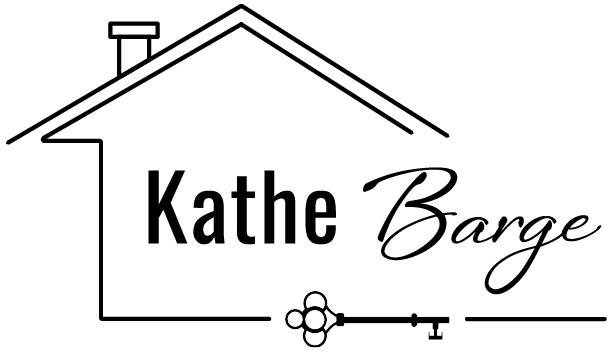
by Kathe Barge | Aug 26, 2022 | Buyers, Buying Conditions, Contracts, For Sale By Owner, Helpful Tips, Home Improvements, Inspections, Listings, Property Updates, Property Value, Real Estate, Sellers, Sellers-Contracts

We find the inspection process confusing – do we have to fix everything in the inspection report before we close on our home or just the repairs the buyer requested?
The home inspection report is the document from which your buyer works to make their repair requests of you. Some buyers will ask for everything and others will ask for only those items that they think are important. They may let some things go, for example, if they are planning on renovating an area and anticipate fixing those items as a part of the renovation.
Once you and your buyer agree on a list of repairs, these are memorialized on an addendum. It is that addendum, called a Change in Terms Addendum (“CTA”), from which you work when completing your repairs. You need not refer to the inspection again unless the CTA references it. You do, however, need to make sure that you do everything on the CTA exactly as specified, so be sure to read it carefully and provide a copy to your contractor(s). For example, if the CTA says that you will have GFCI outlets installed by a licensed electrician then you need to make sure you hire a licensed electrician, and not your favorite handyman, to make the repair! If the CTA says you must paint to match existing then you need to take a sample of the existing paint to the paint store and color match it – don’t rely on old paint in cans – paint fades with age and it won’t match. Be very careful to be sure you are complying with the terms of the CTA – if you do not, or if your contractor does not, your closing may be delayed or postponed until the work is done as specified. Along those lines, be sure to review your contactor’s work when complete and make sure that he actually did what you agreed to do on the CTA. If not, request that he return before it becomes a walk-through issue.
And of course, be sure to get paid receipts from all contractors, or if they have not been paid, notify the closing company so that they can be paid at closing. All repairs must be paid for before ownership changes hands so be sure to stay on top of your bills, and provide receipts to the buyers agent.
[contact-form-7 id="115311" title="Get More Information Form"]
by Kathe Barge | Aug 8, 2022 | Buyers, Buying Conditions, Design, Downsizing, Helpful Tips, Home Improvements, Home Staging, Inspections, Market Trends, Property Updates, Property Value, Real Estate, Sellers, Selling Conditions

We aren’t ready to move but want to update our home – what are the best choices for paint colors and flooring changes, assuming we may want to move in the next few years?
New paint colors must harmonize with the rest of your home, unless you plan to repaint the entire interior of your home, so any suggestions need to be taken in the context of what else is going on inside your home. My best suggestion for a currently fairly timeless paint color is Benjamin Moore’s Edgecomb Gray. This color blends with virtually every shade of white that might be on your trim and nearly every color flooring that might be in your home. It is really more of a greige than a gray and, like a chameleon, changes color a bit depending on what is in the space and what kind of light is filtering in through the windows. However, if your home is a palette if golds, for example, this color might not be the right choice! Trending now is white on white (with trim and walls painted the same or nearly the same shade of white), but this is a design style that is best incorporated throughout the entire home, and not just a singular room. If you have wallpaper in your space, then it’s a very good investment to have it removed (do not paint over it, no matter what the painter tells you) and painted in a color that coordinates with your design aesthetic. Wallpaper overall remains a difficult sell.
This color blends with virtually every shade of white that might be on your trim and nearly every color flooring that might be in your home. It is really more of a greige than a gray and, like a chameleon, changes color a bit depending on what is in the space and what kind of light is filtering in through the windows. However, if your home is a palette if golds, for example, this color might not be the right choice! Trending now is white on white (with trim and walls painted the same or nearly the same shade of white), but this is a design style that is best incorporated throughout the entire home, and not just a singular room. If you have wallpaper in your space, then it’s a very good investment to have it removed (do not paint over it, no matter what the painter tells you) and painted in a color that coordinates with your design aesthetic. Wallpaper overall remains a difficult sell.
As to flooring, real wood floors remain the best investment you can make. They are timeless and easy to refinish if they become worn or if the buyer prefers a different color. I highly recommend choosing a medium tone brown, not too yellow, red or dark and preferably in ¾” thickness. If engineered wood floors are what your budget requires, choose one that the manufacturer indicates can be refinished at least once, and keep a few extra pieces on hand in case you damage any through normal wear and tear. Bamboo is another great option and there are on-line suppliers that offer a variety of shades in ¾” planks – it is very resilient, environmentally friendly and installed can look like hardwood. I do not recommend that you choose the latest trend, “LVL” (luxury vinyl flooring), for anything beyond the basement level of your home. These are plastic floors, and if your home will likely sell for over $500,000, these floors will not be appreciated on the main or upper levels. Finally, carpet in a neutral tone plush (no berber, no mixed colors) is acceptable as long as they are clean and stain free. If you stain them during the remaining time in your home, you would need to replace them again before you sell your home.
[contact-form-7 id="115311" title="Get More Information Form"]
by Kathe Barge | Jul 12, 2022 | Buyers, Buying Conditions, Helpful Tips, Inspections, Listings, Real Estate, Security, Sellers, Selling Conditions

How do home sellers protect themselves from big walk through bills from a buyer?
Buyers conduct a final walk through right before they close on a home. This is probably the first time they have seen your home vacant. If they find conditions they aren’t expecting, you can expect a bill at the closing or a last minute request to remedy the condition.
What kinds of things might come up? There are many things that can cost you money at a walk through. Here are a few. If you have any damage to your floors (even if it was there when you bought the home) and you failed to list the damage on your disclosure, and it wasn’t obvious when you walked through your occupied home (under rugs or furniture), you can expect that the buyer will expect you to pay for the repair/replacement when he discovers the issue, which could be a significant expense. What should you do? Disclose. Disclose. Disclose! When you list your home, take the time to make sure your disclosure lists every possible condition issue with your home.
If you leave anything behind that isn’t attached or specifically included, you should anticipate you may be required to call a last minute hauler to remove the items. If the items were there when you bought the home, that’s no excuse. The house must be empty when you leave unless you have the buyers’ specific consent to leave the items behind.
Forget to cut the grass in a few weeks? You could be asked for a credit to have the lawn mown. Forget to clean the house? If its not at least “broom swept clean” you could be paying a cleaning fee. Forget to complete your inspection repairs or forget to check the work and make sure it’s done correctly? You can’t rely on the contractors to get it right – you must check the work – if they didn’t finish or did the wrong thing, you will likely have to pay for the repair again. Accidentally remove an inclusion such as the TV wall mount bracket? You may have to pay for a new one.
Take the time to make sure the home is exactly as you would want it were you moving in and be pro-active with your buyers if you discover any issues on your move out to avoid any closing table surprises.
[contact-form-7 id="115311" title="Get More Information Form"]
by Kathe Barge | Jun 13, 2022 | Buyers, Buying Conditions, Contracts, Helpful Tips, Inspections, Listings, Property Value, Real Estate

What kinds of items would be viewed as “hot buttons” for home buyers on inspections?
If you are a home seller, there is an ever increasing list of items that you will be expected to address if any are discovered on your home inspection. Given that, if you are thinking about selling your home, it would be a good idea to determine if any of these conditions exist at your home and remedy them prior to listing your home. Items that sellers are generally expected to address these days include:
Radon: if your home exceeds 4.0pCi/l, you will be expected to remediate the radon, even if it was a low reading when you bought the home. Radon varies over time. The estimated cost for a system is approx.. $1300.
Mold: If there is mold anywhere at all, you will be expected to have it remediated. Basements and attics are the most obvious places mold hides out, but be sure to check showers and under sinks.
Electrical: If you have knob and tube wiring, you will likely be paying for it to be removed and replaced, unless you price your home with a rewire in mind and disclose its presence. If your home has any Pushmatic brand electrical panels, buyers will also expect those to be replaced.
Broken Seals: if you have thermopane windows, doors or skylights in your home, buyers will expect you repair the broken thermo seals. This is evident because the windows have a cloudy look to them. There are a few companies in Pittsburgh that can do this reasonably affordably.
Septic/Sewer: Sewer lines are the newest “must do” inspection. If a buyer finds roots in your sewer line, at a minimum you will be expected to clear the roots from the line, but if they are bad you will be expected to line or replace the line. This can be extremely costly so I highly advise that you camera your own lines in advance of selling and get them in good shape.
You can be certain that if any of these conditions exist in your home, you will be expected to remedy the condition unless you disclose its presence and price accordingly.
[contact-form-7 id="115311" title="Get More Information Form"]
by Kathe Barge | Jun 9, 2022 | Blog, Buyers, Buying Conditions, Contracts, Helpful Tips, Inspections, Listings, Property Updates, Property Value, Real Estate

We find the inspection process confusing – do we have to fix everything in the inspection report before we sell our home or just the repairs the buyer requested?
The home inspection report is the document from which your buyer works to make their repair requests of you. Some buyers will ask for everything and others will ask for only those items that they think are important. They may let some things go, for example, if they are planning on renovating an area and anticipate fixing those items as a part of the renovation.
Once you and your buyer agree on a list of repairs, these are memorialized on an addendum. It is that addendum, called a Change in Terms Addendum (“CTA”), from which you work when completing your repairs. You need not refer to the inspection again unless the CTA references it. You do, however, need to make sure that you do everything on the CTA exactly as specified, so be sure to read it carefully and provide a copy to your contractor(s). For example, if the CTA says that you will have GFCI outlets installed by a licensed electrician then you need to make sure you hire a licensed electrician, and not your favorite handyman, to make the repair! If the CTA says you must paint to match existing then you need to take a sample of the existing paint to the paint store and color match it – don’t rely on old paint in cans – paint fades with age and it won’t match. Be very careful to be sure you are complying with the terms of the CTA – if you do not, or if your contractor does not, your closing may be delayed or postponed until the work is done as specified. Along those lines, be sure to review your contactor’s work when complete and make sure that he actually did what you agreed to do on the CTA. If not, request that he return before it becomes a walk-through issue.
And of course, be sure to get paid receipts from all contractors, or if they have not been paid, notify the closing company so that they can be paid at closing. All repairs must be paid for before ownership changes hands so be sure to stay on top of your bills, and provide receipts to the buyers agent.
A home’s value is set by the market. Value is always determined by what a buyer is willing to pay for your home. Many factors come into play in setting that value. Market value reflects quantitative factors such as: # bedrooms, # bathrooms, # garages, placement of garages (attached or integral), lot configuration (large and functional back yard? Cliff lot?), location of the home generally, age of roof, age of mechanicals. Market value also reflects more qualitative items: how updated is your home, and is it all new, or just refreshed? What is the floorplan (open concept?) What are your wall colors? There is always a range that value will land in, which we call the range of reasonable. There is no ONE price at which a home will sell. If there are many buyers seeking a home like yours, it will sell at the top of the range of reasonable. If there are not, it will take longer to sell and may sell a bit lower in the range. What the market does not consider in setting a value of a home is what you need from the home. In 2008, many homeowners had used their homes as ATMs and withdrawn large sums of money for educations, vacations and cars. When the market softened, there was not enough equity for them to be able to sell their homes and not be in a short sale situation. This fact, that a homeowner over-extended themselves on mortgages, is not the least bit relevant to market value. The market is also not going to consider what you plan to do next. If you plan to move to Los Angeles to be closer to family and are finding that the Pittsburgh market is not going to yield you enough to be able to buy in L.A., you will need to turn to other investments to make up any difference.
We are in a very robust market – your home is far more likely to garner more now – whatever that may be – than it could have in the past. Forecasters are also suggesting that values will soften by year end. My crystal ball is out for service, but what I can tell you is that every hot market eventually softens. Waiting out the market so that you can get a price that the market is unprepared to deliver at this time may have you waiting many, many years, and during that time you may need to invest even more in your home in order to deliver to the market what it needs in order to deliver an acceptable sale to you.
[contact-form-7 id="115311" title="Get More Information Form"]
by Kathe Barge | Mar 30, 2022 | Buyers, Buying Conditions, Contracts, Helpful Tips, Inspections, Listings, Market Trends, Property Updates, Property Value, Real Estate, Sellers

The market is so hot right now and we aren’t having any luck getting a home – should we waive home inspections?
You are correct –the market under $1million is very fast paced right now, and in many instances, the winning bidder has waived home inspections. That does seem to be what it may take to “win” right now but I cannot recommend that you make that choice. Now several months into the “waive inspections” craze we are starting to hear stories about the expected fallout from this hasty decision.
From the seller’s perspective, I highly recommend that you have your home pre-inspected and repair or disclose the relevant items. While an inspection might cost you upwards of $500, it is money well spent toward a smooth closing. If you have pre-inspected your home and provide the report to prospective buyers, you are doing your part to make sure your buyer is well-informed. In the absence of a pre-inspection, I do not recommend that you accept an offer from a buyer who has not inspected your home. I have started hearing from home inspectors that disgruntled buyers are seeking post closing inspections to find problematic items and sue the sellers for failure to disclose. You don’t want that to be you. If you have not pre-inspected, we can discuss strategies to allow a buyer’s inspection and still protect you.
From a buyer’s perspective, as we all imagined would happen, the post-closing stories are starting to mount about buyers who purchased without an inspection and are now having all sorts of forseeable issues – roofs leaking, furnaces failing… If you are going to make this risky choice, you need to do so knowing that you will be assuming the risk of potentially tens of thousands of dollars of issues The contract specifically states that your inspection is your opportunity to find issues – if you waive that, you will be fighting an uphill battle to recover against anyone. Before you make an offer without an inspection contingency, you really do need to ask yourself if you are prepared to absorb those costs!
[contact-form-7 id="115311" title="Get More Information Form"]
by Kathe Barge | Mar 8, 2022 | Buying Conditions, Helpful Tips, Inspections, Listings, Market Trends, Real Estate, Sellers

Our neighbor just had to replace their sewer line – is that a common home inspection repair?
Sewer lines have become as radon was 20 years ago – today’s hot button for home buyers. In some boroughs (Mt Lebanon, for example) the borough now requires that before a home seller can transfer ownership, the sewer line must be scoped and must be without issues. Here in the Sewickley area, we do not have any boroughs imposing any such requirement on home sellers yet, but many buyers today do have a scope performed of the sewer line as part of their home inspection. And yes, if issues are discovered, they do expect the seller to remedy them. If a sewer line needs to be replaced, the cost will likely be between $5,000 and $10,000.
Sewer lines are not something we think about on a daily basis. As long as we don’t have back-ups, we assume that all is well with the line. But this is not necessarily the case. With older homes, sewer lines were made of terracotta pipe and this can break easily and can also be easily infiltrated by tree roots. If you live in an older home and haven’t replaced your sewer line, there is a good chance you have some issues.
Paying for a sewer camera test is not anyone’s idea of a good time, but if you are contemplating a sale of your home, it is probably a smart, pro-active thing to do. If you discover a problem in advance, there may be some cost-effective options for you to solve the problem without a full replacement of the line. Sewer lines can often by lined with a plastic liner. Tree roots can often by removed by hydrojetting. If you wait for a buyer to perform the test, you may get stuck with a full new line — the buyer might not accept one of the compromise options. So its best to explore the sewer line now, before it becomes an issue, and make any needed corrections.
[contact-form-7 id="115311" title="Get More Information Form"]
by Kathe Barge | Feb 2, 2022 | Buyers, Buying Conditions, Inspections, Listings, Property Updates, Property Value, Real Estate, Sellers, Selling Conditions

Sometimes it seems like everything is breaking around our house and we get behind on repairs. Isn’t there some level of wear and tear buyers of “previously enjoyed” homes are expecting to have to accept?
The process of selling and buying a home involves many fine lines. How far do you take preparing your home for sale? Do you really need to address all of the items suggested by your agent, the home stager or the home inspector who did a pre-inspection? Do you really have to attend to everything your family has broken or worn out over the years
Anything that could come up on an inspection, if you know about it, really must be repaired or disclosed. My vote is repair. Even with items that are very obvious, when an inspector gets involved, he may blow the issue out of proportion and something that might have cost you $1000 to repair before you listed ends up costing you $3000 on the inspection request. If its something an inspector might find, you can bet he will find it and you will be expected to cover the cost of repair anyhow, so you might as well repair upfront.
Many buyers actually get quite nervous during the home inspection (also known as buyers remorse). If you happened to have gotten one of these buyers, it is possible that they could walk away from your deal if the inspection concerns feel too weighty to them. After you actually receive and negotiate the offer, the last thing you want to do is lose the buyer over items that you could have fixed but didn’t think anyone would notice or care about! In today’s market, they notice, they care. Sometimes they are willing to let you pay for the repair. Sometimes they just walk. Don’t take any chances. If you suspect it is likely someone would seek a repair, get it done!
Buyers, as much as I advocate for sellers to take care of the wear and tear items on their homes, it is important for you to be reasonable on your inspection requests as well. If you see an item that needs to be fixed while you are touring the home, take that into account when you make your offer and do not revisit it on the inspection. Inspection requests are supposed to be for items you didn’t know about and didn’t have a chance to adjust for in making your offer. Again, its a fine line buyers also walk in deciding what are fair and appropriate inspection requests of a seller.
[contact-form-7 id="115311" title="Get More Information Form"]
by Kathe Barge | Sep 7, 2021 | Blog, Buyers, Buying Conditions, Contracts, Inspections, Listings, Market Trends, Marketing, Mortgage, Property Value, Real Estate, Sellers, Selling Conditions

We hear selling a home can be a trying process. Any annoyances a seller should be expecting?
Below is a short list of many of the “joys” sellers might experience during the listing process. Being aware that these are possibilities will hopefully help you take them in good humor if they happen to you!
- The agent showing your home will miss appointments and not call or show up.
- Appointments will be made and cancelled at the last minute.
- Some showings will last about five minutes and some will last 3 hours.
- There will be a day when I call you and say someone wants to see your house, and you are going to ask me when. And I will say: “Look out your windows, they are sitting outside now”!
- Agents are going to knock on your door or even drive by, see you in the yard and ask if can they see you house.
- Agents showing your home will forget to turn lights off.
- Agents showing your home will let your pets out (best to remove them from your home for showings) or your neighbor’s pet in.
- Agents will provide unhelpful feedback – buyers buy homes when they attach emotionally to a home and when they don’t, their feedback is often nonsensical.
- Agents will not provide any feedback – incredibly annoying, I know.
- Expect lowball offers (at least it is a starting point). If your home has been on the market for more than a month, there is a reasonable chance that you priced it too high – maybe the lowball isn’t as low as you think.
- Things will come up on the inspection that you had no idea were wrong with your home and you will be sure the inspector made a mistake. A pre-inspection is a great way to protect yourself against this!
- The buyer will make ridiculous inspection requests.
- The buyer will ask to bring in contractors for estimates for work they want to do after the closing at the seemingly most inconvenient times.
- The property might not appraise at what you are selling it for. In a hot market like this one, this is a real risk. Be prepared to adjust your price if your sales price is over the listing price and it doesn’t appraise.
- The closing date on the contract may change. Lenders and closing companies remain swamped right now – be open to the possibility of a delay.
[contact-form-7 id="115311" title="Get More Information Form"]
by Kathe Barge | Aug 24, 2021 | Buyers, Buying Conditions, Home Staging, Inspections, Market Trends, Real Estate, Sellers, Selling Conditions

We recently viewed a home that is on the market, only to find out the seller was taping the showing – we were stunned. Is this common?
Welcome to the age of cheap technology! If you are viewing a home, whether at an open house to at a private showing, these days you must assume that you are being filmed. There are many systems that are available, from ring to nest to cameras installed as part of a home security system. They are fairly inexpensive, are often not recognizable as cameras and frequently record sound as well as video. Sellers typically install them as part of a home security or doorbell system – they are not usually installed just to spy on buyers and their agents. Typically, homeowners have security in mind when they install these systems. But when their home goes on the market, these systems do provide a handy way to see firsthand what people are saying about their home. So yes, it has become reasonably commonplace to be filmed at a minimum around the doors of a home, but often inside as well. The owners can usually access these videos in live time on their tablet or phone, and they are also recorded for later review.
Knowing this, I would suggest that you simply revert to old-fashioned good manners when viewing homes. Don’t say anything near or in someone else’s home that you wouldn’t want to see on YouTube! Don’t criticize the seller’s décor choices or the condition of the home – it may come back to haunt you if, after reviewing the inventory, you decide that it was in fact the best option for you, only to find out that you unintentionally offended the sellers. Save all commentary for when you are back in the car with your agent.
If you are viewing the home with children, be mindful of their behavior as well. Keep them with you at all times. Be sure that they are not running or jumping inside of someone else’s home or touching their things. Have a hard time managing high energy children at an open house or showing? Schedule a babysitter so that you can view the home without having to worry about monitoring their every move. And in these pandemic times, it is best to wear a mask – if the seller requests masks, your agent can be charged with an ethical violation if you don’t wear one – even if you are fully vaxxed! In this day of minimal privacy and cheap technology, the best approach is to assume you could very well be on Candid Camera!
[contact-form-7 id="115311" title="Get More Information Form"]
by Kathe Barge | Jul 26, 2021 | Buyers, Buying Conditions, Inspections, Listings, Real Estate, Sellers, Selling Conditions

What should we expect from the Buyer’s walkthrough?
Buyers conduct a final walk through right before they close on a home. This is probably the first time they have seen their new home vacant. If they find conditions they aren’t expecting, a seller can expect a bill at the closing or a last minute request to remedy the condition. What kinds of things might come up? There are many things that can cost a seller money at a walk through. Here are a few.
If there is any damage to floors (even if it was there when a seller bought the home) and the damage was not listed on the disclosure, and it wasn’t obvious when the buyer walked through the occupied home (under rugs or furniture), a seller can expect that the buyer will expect the seller to pay for the repair/replacement when he discovers the issue, which could be a significant expense. What should a seller do? Disclose. Disclose. Disclose! When listing a home, sellers should take the time to make sure the disclosure lists every possible issue with the home.
If a seller leaves anything behind that isn’t attached or specifically included, a seller should anticipate they may be required to call a last minute hauler to remove the items. If the items were there when the seller bought the home, that’s no excuse. The house must be empty unless you have the buyers’ specific consent to leave the items behind.
Forget to cut the grass in a few weeks? A seller could be asked for a credit to have the lawn mowed. Forget to clean the house? If its not at least “broom swept clean” a seller could be paying a cleaning fee. Forget to complete inspection repairs or forget to check the work and make sure it’s done correctly? A seller can’t rely on the contractors to get it right – they must check the work – if its incomplete or incorrect, a seller will likely have to pay for the repair again. Accidentally remove an inclusion such as the TV wall mount bracket? A seller may have to pay for a new one.
Take the time to make sure the home is exactly as you would want it were you moving in and be pro-active with your buyers if you discover any issues on your move out to avoid any closing table surprises.
If BUYING or SELLING real estate is in your future, please get in touch with me and put my expertise to work for you!! As YOUR REAL ESTATE ADVOCATE, I will help you avoid pitfalls like those mentioned above. 412.779.6060
[contact-form-7 id="115311" title="Get More Information Form"]
by Kathe Barge | Jul 21, 2021 | Blog, Buyers, Buying Conditions, Contracts, Home Staging, Inspections, Listings, Marketing, Property Updates, Property Value, Real Estate, Sellers, Sellers-Contracts, Selling Conditions

Our home went under agreement quickly! When we moved in we installed expensive hardware that we really love (door knobs, switch plate covers, towel rods, etc.). We would like to take it with us. Can we substitute other items before we close?
Absolutely not! First of all, with a quick sale you likely got a high price or your home and when a buyer is paying top dollar, it is not appropriate to start pulling things out of your home! Additionally, any item that is affixed to your home with a screw, nail, etc. must convey with your home unless you have specifically excluded it from your agreement of sale. Unless you raise this question during negotiations and your buyer agreed prior to signing the agreement, the items must remain with your home.
About 20 years ago I represented a buyer of a home that was remodeled with high-end Restoration Hardware items – cabinet knobs, towel bars… After we agreed on a price but before closing, we returned to the home to discover that the sellers had removed the expensive Restoration Hardware items and installed baseline builder items from Lowes. This was not what my client had seen when they toured the home and not what they had agreed to purchase. The seller ended up providing a $7000 reduction in the purchase price to make up for the items that had been switched. I’m not sure if the buyer ever replaced the items – what is relevant was that the removal of the high end items made the home less valuable.
If you find yourself heading toward a closing and you are just realizing that there is something affixed to your home that has sentimental value that you forgot to exclude, you can certainly ask your buyer if they would agree to a substitution – most buyers will allow removal of a sentimental item if you replace it with a like value item. Absent buyer consent or upfront exclusion, all affixed items must stay. Items that are occasionally inappropriately removed include: appliances, doorknobs, switch covers, towel bars, curtain rods, mailboxes, attached shelving and TV wall mount brackets. Mirrors that are attached must stay. Those hanging on hooks can be removed if you have to have them (although most buyers do expect them to remain).
[contact-form-7 id="115311" title="Get More Information Form"]
by Kathe Barge | Jun 18, 2021 | Blog, Buyers, Buying Conditions, Contracts, Inspections, Listings, Market Trends, Property Updates, Property Value, Real Estate, Sellers

It seems buyers can be very picky on home inspections. What should a seller expect?
What a Seller needs to be prepared for on a home inspection needs to be evaluated in the context of the entire deal! Both buyers and sellers need to keep things in perspective. If a Buyer got a great deal on a home, then the inspection should be more about major things that the Buyer could never have known about. If a Seller got top dollar for a home, the Seller should expect to be very generous on the inspection resolution with the buyers. Sellers do need to expect that a buyer paying asking price or above will expect the inspection items to be addressed by the Seller unless the Seller had disclosed them on the Disclosure.
The Disclosure is a Seller’s friend. What a Seller discloses is supposed to be outside the scope of inspection requests. These are items that the Buyer should be taking into account when making their initial offer. Therefore, when filling out the Disclosure, Sellers will want to review it carefully to be sure it is thorough. Inspectors do not miss anything these days, so it will be far less of a financial blow to a seller if all possible issues are noted up front.
Of course, a pre-inspection may be a Seller’s best approach for a smooth transaction for all parties. While a seller will spend approximately $400 up front, it gives you a chance to repair or disclose the issues before they possibly destroy a deal. Remember, if buyers and sellers can’t come to a resolution about inspection concerns, the deal is terminated and both parties move on. Sellers, you obviously want to sell or you wouldn’t be undergoing the joy of preparing your home for showings. Keep the big picture in mind and understand that unless you are giving your home away, your buyer will expect you to fix what you didn’t disclose. Don’t like the sound of that? Pre-inspect so you know what you will have to address upfront.
[contact-form-7 id="115311" title="Get More Information Form"]
by Kathe Barge | Apr 5, 2021 | Buyers, Buying Conditions, Inspections, Market Trends, Property Updates, Real Estate, Selling Conditions

The market is very hot right now and we are having no luck winning a bidding war. Should we waive inspections?
It’s certainly true that waiving inspections will make your offer much stronger than a competing offer in which the buyer is inspecting the home. Most sellers would gladly choose an offer waiving inspections over one that is not. However, before you make such a bold choice, you do need to consider the consequences.
If the seller has pre-inspected the home, then you have a reasonably limited amount of exposure should you choose to buy without inspections. Most home inspectors are pretty thorough and so while there are always things that a home inspector misses, a pre-inspection should give you a good sense of what you are buying. After reviewing the report, if you feel that the report is thorough, it may be a reasonable risk to waive inspections, understanding that doing so may open you up to unanticipated expenses. However, this may be a way to help you win a home that is receiving multiple offers.
If the home has not been pre-inspected, then it’s quite risky to make an offer without planning to inspect the home. If you happen to be a contractor and you feel comfortable assessing a home on your own, that’s one thing. But if you don’t have any experience with contracting or any experience with being involved in the maintenance of your own current home such that you feel very comfortable assessing the conditions of homes, you may be poorly equipped to get a handle on the condition of the home you’re buying. You could be looking at tens of thousands of dollars of unexpected expenses, depending on the size of the home. This is something you would need to weigh in deciding whether or not that’s an acceptable risk to you in order to be the successful bidder. It’s not a course of action I would recommend, but you may decide it’s the only way you’re ultimately going to get the house you want. If that’s the case and you do move forward waving inspections, you do need to keep in mind that if you later find problems with the home, the only person responsible for taking care of the cost of related repairs is you – not the prior owner, and not the Realtors. So do proceed with caution!
[contact-form-7 id="115311" title="Get More Information Form"]
by Kathe Barge | Feb 21, 2021 | Blog, Buyers, Buying Conditions, Home Staging, Inspections, Market Trends, Property Updates, Property Value, Real Estate, Sellers, Selling Conditions

Sometimes it seems like everything is breaking around our house and we get behind on repairs. Isn’t there some level of wear and tear buyers of “previously enjoyed” homes are expecting to have to accept?
The process of selling and buying a home involves many fine lines. How far do you take preparing your home for sale? Do you really need to address all of the items suggested by your agent, the home stager or the home inspector who did a pre-inspection? Do you really have to attend to everything your family has broken or worn out over the years? Anything that could come up on an inspection, if you know about it, really must be repaired or disclosed. My vote is repair. Even with items that are very obvious, when an inspector gets involved, he may blow the issue out of proportion and something that might have cost you $1000 to repair before you listed ends up costing you $3000 on the inspection request. If it’s something an inspector might find, you can bet he will find it and you will be expected to cover the cost of repair anyhow, so you might as well repair upfront.
Many buyers actually get quite nervous during the home inspection (also known as buyers remorse). If you happen to get one of these buyers, it is possible that they could walk away from your deal if the inspection concerns feel too weighty to them. After you actually receive and negotiate the offer, the last thing you want to do is lose the buyer over items that you could have fixed but that you didn’t think anyone would notice or care about! In today’s market, they notice, they care. Sometimes they are willing to let you pay for the repair. Sometimes they just walk. Don’t take any chances. If you suspect it is likely someone would seek a repair, get it done!
Buyers, as much as I advocate for sellers to take care of the wear and tear items on their homes, it is important for you to be reasonable on your inspection requests as well. If you see an item that needs to be fixed while you are touring the home, take that into account when you make your offer and do not revisit it on the inspection. Inspection requests are supposed to be for items you didn’t know about and didn’t have a chance to adjust for in making your offer. Again, it’s a fine line buyers also walk in deciding what are fair and appropriate inspection requests of a seller.
[contact-form-7 id="115311" title="Get More Information Form"]
by Kathe Barge | Dec 8, 2020 | Buyers, Buying Conditions, Home Staging, Inspections, Listings, Market Trends, Marketing, Property Updates, Real Estate, Sellers, Selling Conditions

If our home is on the market, how long is it ok to keep our decorations up?
In this incredibly dark time of the year, and even more so in this difficult holiday season as we continue to muddle through this global pandemic, festive holiday décor certainly helps to brighten everyone’s day, so if your home is on the market, it is certainly a good idea to tastefully decorate for the holidays. This year might be the year to embrace an inflatable (maybe a large Santa for example) to bring a little extra levity to the neighborhood! Even if your home is vacant, a seasonal wreath on the front door is a nice touch to welcome guests. We have been unusually busy this fall, so presentation remains important, even when its cold and snowy outside.
Once we start 2021 (and yes, we are all quite eager to put an end to 2020), if your home is on the market, it is important to have your holiday decorations down and stored as quickly as possible, ideally by January 2nd! Our spring market should jump into high gear as soon as we hit mid-January. Buyers themselves will have put the holidays behind them and will enter the new year with a new sense of urgency to find their new home. Once the holiday celebrating has past, decorations quickly look tired, so take them down and store them for another year. If you enjoy door wreaths, that could remain as long as it is more “wintery” and less holiday.
And don’t forget my other wintertime showings tips – lights on for showings, and use the highest acceptable wattage. Keep walks and driveways free of snow and ice. If you’re not going to be out or too long, a fire in the fireplace is also a nice idea. Thermostat at a warm, cozy temperature (Buyers will not embrace a home if it feels chilly). Boot mats by the front door to save your floors.
Enjoy the holidays – stay warm and safe!
[contact-form-7 id="115311" title="Get More Information Form"]
by Kathe Barge | Nov 30, 2020 | Blog, Buyers, Buying Conditions, Home Staging, Inspections, Market Trends, Property Updates, Property Value, Real Estate, Sellers
If there was one thing you would advise us to do to our home as we continue our months “at home,” in this global pandemic, what would that be?
 Whether you are planning to sell your home this coming year or not, the best thing you can do to your home is a home inspection! We all live in our homes but rarely take the time to stop and give them a careful look. Weather beats up the outside of our homes year round. Caulking fails, flashing fails, paint peels and exposes wood to rot. We forget to clean our gutters on a regular basis – gutters and downspouts fill with decaying debris, causing water to back up into our homes and cause mold problems. We forget to have our furnaces serviced and fittings loosen and cause condensate to leak and rust our furnaces. The list goes on and on. Simply living in and not doing a regular check up on your home, you are leaving it open to the possibility of major repair bills later and major depreciation in your investment’s value. A home inspection will give you a to do list of projects to tackle throughout the year to keep your home in great shape and maintain its value!
Whether you are planning to sell your home this coming year or not, the best thing you can do to your home is a home inspection! We all live in our homes but rarely take the time to stop and give them a careful look. Weather beats up the outside of our homes year round. Caulking fails, flashing fails, paint peels and exposes wood to rot. We forget to clean our gutters on a regular basis – gutters and downspouts fill with decaying debris, causing water to back up into our homes and cause mold problems. We forget to have our furnaces serviced and fittings loosen and cause condensate to leak and rust our furnaces. The list goes on and on. Simply living in and not doing a regular check up on your home, you are leaving it open to the possibility of major repair bills later and major depreciation in your investment’s value. A home inspection will give you a to do list of projects to tackle throughout the year to keep your home in great shape and maintain its value!
You may not think about this until you go to sell your home. Some of the wear and tear may be obvious to a buyer, who will typically have checked out every available home, be able to see signs of your “benign neglect,” and pass on yours because of its comparatively negative condition. Even if a buyer doesn’t’ notice at first, there is no doubt that a home inspector will notice! After working hard to get your home sold, you may find yourself in the all too common situation of being presented with a long list of inspection requests that you need to complete in order to hold your deal together, or worse yet, a buyer who backs out of your deal because the house needs “too much work,” leaving you in the position of having to fix everything and start all over again. A homeowner should expect simply keeping a home in acceptable condition will cost them $3,000 – $10,000 a year, depending on the size of the home – some years will be more if its time for a major project, and some less. If you’re not investing this, chances are someday you will when you are faced with a long list of inspection issues.
So while you remain “at home” waiting for the day the vaccine arrives, why not give your home a check up and attend to its needs! Give me a call if you need the names of reputable local inspectors.
[contact-form-7 id="115311" title="Get More Information Form"]
by Kathe Barge | Oct 5, 2020 | Contracts, Inspections, Listings, Real Estate, Sellers
 We hear that selling a home can be a trying process. They say forewarned is forearmed. Any annoyances a seller should be expecting?
We hear that selling a home can be a trying process. They say forewarned is forearmed. Any annoyances a seller should be expecting?
Below is a short list of many of the “joys” sellers might experience during the listing process. Being aware that these are possibilities will hopefully help you take them in good humor if they happen to you!
- The agent showing your home will miss appointments and not call or show up.
- Appointments will be made and cancelled at the last minute.
- Some showings will last about five minutes and some will last 3 hours.
- Agents showing your home will forget to turn lights off.
- Agents showing your home will let your pets out (best to remove them from your home for showings) or your neighbor’s pet in.
- Agents will provide unhelpful feedback – buyers buy homes when they attach emotionally to a home and when they don’t, their feedback is often nonsensical.
- Agents will not provide any feedback – incredibly annoying, I know.
- Expect lowball offers (at least it is a starting point).
- Things will come up on the inspection that you had no idea were wrong with your home and you will be sure the inspector made a mistake or the buyer will make ridiculous inspection requests. Remember this easy rule of thumb – if the requests total less than 1% of the sales price, its usually best to agree to the requests, regardless of how ridiculous they might be.
- The buyer will ask to bring in contractors for estimates for work they want to do after the closing at the seemingly most inconvenient times.
- The property might not appraise at what you are selling it for – with the hot market we are in and with homes often selling in bidding wars with multiple offers, there is a risk you might have to make a downward adjustment in your sales price.
- The closing date on the contract may change. Again, lenders are overwhelmed right now and \many closings have been delayed, sometimes for a week or more. This does not mean that your buyer cannot buy your home – it just means lenders are overwhelmed and missing deadlines – be prepared to be patient.
[contact-form-7 id="115311" title="Get More Information Form"]
by Kathe Barge | Jan 20, 2020 | Blog, Buyers, Inspections, Mortgage
We’re first time home buyers. Where do we begin? (continued from last week)
 For those of who just picking up the conversation today, check out my blog at www.askkathe.com to read the past two weeks’ introduction to the home buying process. If you are following along, so far you have gotten pre-approved for your mortgage, researched and chosen a buyer’s agent to be your advocate, saved money for your down payment, shopped for a home and gotten one under agreement. Now the fun continues!
For those of who just picking up the conversation today, check out my blog at www.askkathe.com to read the past two weeks’ introduction to the home buying process. If you are following along, so far you have gotten pre-approved for your mortgage, researched and chosen a buyer’s agent to be your advocate, saved money for your down payment, shopped for a home and gotten one under agreement. Now the fun continues!
Once you have a home under agreement and have deposited your hand money, you will be ready to schedule your inspections. Your buyer’s agent should provide you with guidance in finding reputable home inspectors. You will want to consider scheduling a general home inspection as well as inspections for radon, wood boring insects (termites), mold, and possibly of the sewer lines. If the home has a septic system you will absolutely want to fully inspect the system – they are quite costly to replace. If there is a well on the property, you will want to test both the water quality and the capacity of the well. You may also need to have specialists evaluate aging components such as the roof. You generally have 10 – 14 days to complete your inspections and at the end of that period, you will need to make a request of the seller if you would like any items addressed. To reach a successful conclusion of inspection negotiation, it’s a good idea to keep some simple tips in mind. First, anything on the disclosure should have been considered when you were making the offer – its not a great idea to revisit disclosed items. For example, if the seller disclosed that the roof is at the end of its useful life, asking for money toward a new roof is unlikely to be well received. The same can be said for items you could have easily seen. If the inspector notes that the driveway is cracked and you should have seen it while visiting the home, asking for the seller to pay for a new driveway will also not be well received. So when deciding what, if anything, to request of the seller, eliminate disclosed items and things you noticed when visiting the home and then turn your focus to the items that concern you most. Of course, if there were multiple offers and you were the winner in a bidding war, you may not be able to ask for much if anything as there is likely another buyer on standby! Ultimately, you and your seller will need to reach a compromise on the inspection issues and that agreement will be formalized in a written addendum to your Agreement of Sale.
At the same time you are working through inspections, you will also need to make application for your financing. This must be complete (in other words, you must have all of your paperwork to your lender) within 7 days of the final Agreement of Sale. Applying for a mortgage these days can seem quite challenging – be prepared for the lender to ask for what will seem like a mountain of documents. And do NOT make any major purchase until after you close on your home – changes to your outstanding debt at this point could affect your ability to qualify for a loan at all! Once you get through inspections and mortgage application, it should be smooth sailing. We will cover the final step in the process next week!
 307 Grant Street, Sewickley – NEW LISTING!
307 Grant Street, Sewickley – NEW LISTING!
Incredible central Village home in a phenomenal neighborhood with flat, fenced yard, 2 car garage. Newly remolded kitchen and baths. Upstairs features 3 bedrooms, 2 baths. The main level includes living, dining and family rooms, eat-in kitchen and den. Charming covered back porch. $725,000. Join me for our open house Sunday, 1-3pm.
 213 Chestnut Road
213 Chestnut Road
Beautifully remodeled Sewickley Village Victorian with high ceilings, open floorplan and fabulous original architectural detailing. Wonderful newer master suite with stylish newer bath. Four finished levels of living space including lower level gameroom. Flat backyard, two car detached garage. In a wonderful Village neighborhood, within a very easy walking distance to Village shops and restaurants. $795,000
[contact-form-7 id="115311" title="Get More Information Form"]
by Kathe Barge | Jan 2, 2020 | Blog, Buyers, Home Staging, Inspections, Sellers
Sometimes it seems like everything is breaking around our house and we get behind on repairs. Isnt there some level of wear and tear buyers of “previously enjoyed” homes are expecting to have to accept?
 The process of selling and buying a home involves many fine lines. How far do you take preparing your home for sale? Do you really need to address all of the items suggested by your agent, the home stager or the home inspector who did a pre-inspection? Do you really have to attend to everything your family has broken or worn out over the years?
The process of selling and buying a home involves many fine lines. How far do you take preparing your home for sale? Do you really need to address all of the items suggested by your agent, the home stager or the home inspector who did a pre-inspection? Do you really have to attend to everything your family has broken or worn out over the years?
Anything that could come up on an inspection, if you know about it, really must be repaired or disclosed. My vote is repair. Even with items that are very obvious, when an inspector gets involved, he may blow the issue out of proportion and something that might have cost you $1000 to repair before you listed ends up costing you $3000 on the inspection request. If its something an inspector might find, you can bet he will find it and you will be expected to cover the cost of repair anyhow, so you might as well repair upfront.
Many buyers actually get quite nervous during the home inspection (also known as buyers remorse). If you happened to have gotten one of these buyers, it is possible that they could walk away from your deal if the inspection concerns feel too weighty to them. After you actually receive and negotiate the offer, the last thing you want to do is lose the buyer over items that you could have fixed but didn’t think anyone would notice or care about! In today’s market, they notice, they care. Sometimes they are willing to let you pay for the repair. Sometimes they just walk. Don’t take any chances. If you suspect it is likely someone would seek a repair, get it done!
Buyers, as much as I advocate for sellers to take care of the wear and tear items on their homes, it is important for you to be reasonable on your inspection requests as well. If you see an item that needs to be fixed while you are touring the home, take that into account when you make your offer and do not revisit it on the inspection. Inspection requests are supposed to be for items you didn’t know about and didn’t have a chance to adjust for in making your offer. Again, its a fine line buyers also walk in deciding what are fair and appropriate inspection requests of a seller.
 321 Merriman Road, Sewickley Heights
321 Merriman Road, Sewickley Heights
An exceptional opportunity to live on 42 gently rolling acres in very desirable Sewickley Heights. Beautifully remodeled, this classic historic colonial perfectly blends sophisticated living, modern amenities, and stunning architectural details throughout! Featuring 6 bedrooms, 7 full and 2 half baths, this home boasts a grand entry hall, large open kitchen and inviting two-story family room, well-cabineted butler’s pantry, two mudrooms, handsome private den, spacious formal rooms, main-level gameroom with three walls of windows, large bedrooms and fabulous master suite with dressing room. Glass doors open to charming patios which spill out onto the sprawling lawns! Wonderful pool, outdoor kitchen and living space with impressive outdoor fireplace offer ideal venues for warm-weather entertaining and fun! Four car garage. $4,250,000
 49 Woodland Road
49 Woodland Road
Boasting newer kitchen and baths in a sought after Village neighborhood, 49 Woodland offers a unique opportunity for newer construction in the heart of Sewickley Village. The main level master offers hard-to-find convenience – with 3-5 additional bedrooms upstairs. The beautifully remodeled white kitchen opens to family room and sunroom, with 3 walls of windows overlooking the private backyard. The three car attached garage offers another hard-to-come buy amenity in the Village, as does the finished lower level! $1,625,000.
[contact-form-7 id="115311" title="Get More Information Form"]
by Kathe Barge | Sep 17, 2019 | Blog, Inspections, Sellers
We want to sell our home “as is.” Is this possible?
 If everything comes together perfectly, then yes, it is possible to sell your home “as is” — here is what you will need to do to make that happen!
If everything comes together perfectly, then yes, it is possible to sell your home “as is” — here is what you will need to do to make that happen!
First, you must start by having your home pre-inspected. Very few buyers would consider waiving inspections if the home has not been a qualified home inspector, with reports provided to prospective buyers. You will then need to take the inspection and use it to thoroughly complete the disclosure, making sure that you clearly identify all deficiencies that you aren’t planning to repair. If there are larger items such as a high radon reading, suspected mold or knob and tube wiring, you should at a minimum get estimates for the repairs. All of these things, the disclosure, the inspection reports, and the estimates, all need to be provided to prospective buyers.
The second step to a successful “as is” sale is to price the home for the condition you now know it to be in. The advantage to this approach is being able to tell buyers that the price reflects known condition. You will be far less likely to have requested price adjustments later for unknown issues. It is very important that your chosen price reflect the condition you now know your home to be. For example, if your home has knob and tube wiring, you can’t expect to receive the same price as a similar home that had been rewired. Rewiring is generally speaking a $20,000 – $40,000 project.
Finally, a great marketing strategy is key. To truly achieve an “as is” sale your agent will need to drive in significant traffic and generate multiple offers so that the bidding buyers are willing to waive all inspections in order to be the winning bidder.
I just orchestrated this approach on one of my listings and it worked perfectly. A seller I represented wanted an “as is” sale, did the pre-inspections, obtained estimates and priced very well. We ended up with 4 offers, inspections waived, and ended up selling at nearly 10% over list price! The up-front effort was well worth the end-result!
[contact-form-7 id="115311" title="Get More Information Form"]
by Kathe Barge | Jul 16, 2019 | Blog, Inspections
What kinds of items would be viewed as “hot buttons” for home buyers on inspections?
 If you are a home seller, there is an ever increasing list of items that you will be expected to address if any are discovered on your home inspection. Given that, if you are thinking about selling your home, it would be a good idea to determine if any of these conditions exist at your home and remedy them prior to listing your home. Items that sellers are generally expected to address these days include:
If you are a home seller, there is an ever increasing list of items that you will be expected to address if any are discovered on your home inspection. Given that, if you are thinking about selling your home, it would be a good idea to determine if any of these conditions exist at your home and remedy them prior to listing your home. Items that sellers are generally expected to address these days include:
Radon: if your home exceeds 4.0pCi/l, you will be expected to remediate the radon, even if it was a low reading when you bought the home. Radon varies over time. The estimated cost for a system is approx.. $1000.
Mold: If there is mold anywhere at all, you will be expected to have it remediated. Basements and attics are the most obvious places mold hides out, but be sure to check showers and under sinks.
Electrical: If you have knob and tube wiring, you will likely be paying for it to be removed and replaced, unless you price your home with a rewire in mind and disclose its presence. If your home has any Pushmatic brand electrical panels, buyers will also expect those to be replaced.
Broken seals: if you have thermopane windows, doors or skylights in your home, buyers will expect you repair the broken thermo seals. This is evident because the windows have a cloudy look to them. There are a few companies in Pittsburgh that can do this reasonably affordably. If you disclose the broken seals and price accordingly, you might be able to avoid repair.
Septic/sewer: Sewer lines are the newest “must do” inspection. If a buyer finds roots in your sewer line, at a minimum you will be expected to clear the roots from the line, but if they are bad you will be expected to line or replace the line. This can be extremely costly so I highly advise that you camera your own lines in advance of selling and get them in good shape.
You can be certain that if any of these conditions exist in your home, you will be expected to remedy the condition unless you disclose its presence and price accordingly.
[contact-form-7 id="115311" title="Get More Information Form"]
by Kathe Barge | Jun 4, 2019 | Blog, Buyers, Inspections, Real Estate, Sellers
My home has so many special features. I think it would be best if I were at showings so I could explain them to prospective buyers. Is that ok?
 When you are selling your home, its normal to think that only you can fully convey your home’s fine qualities to a buyer. This leads some sellers to consider the possibility of being home for showings, so that they can make sure that the buyer prospects appreciate all of the home’s amenities. While this may seem sensible to a seller, nothing could be further from the truth!
When you are selling your home, its normal to think that only you can fully convey your home’s fine qualities to a buyer. This leads some sellers to consider the possibility of being home for showings, so that they can make sure that the buyer prospects appreciate all of the home’s amenities. While this may seem sensible to a seller, nothing could be further from the truth!
When buyers visit your home, it is important that they be allowed the space to imagine the home as their own. This starts, of course, with home staging, so that the home is not overly personal when the buyers arrive. But it extends to allowing them to tour the home alone with their buyer agent. For buyers to buy a home, they must bond to a home. For buyers to bond to a home, they need to be free to relax in your home and chat with their agent about what they would do to make the home their own. This will not happen if you are present. So what can you do to make sure they appreciate your home’s qualities? Hire a listing agent who will design a custom brochure for your home that is available when buyers visit your home. Such a brochure is your best ammunition – they can take it home and recall all of your home’s wonderful features and get their questions answered as well.
Giving the buyers their space extends to the home inspections as well. The period during the home inspection is one of normal buyer remorse. Did we buy the right home? Will a better home become available? Allowing buyers the freedom to return to your home alone will allow them to bond again to your home and stay committed to it during the sometimes difficult inspection process.
In fact, the only time you should interact with your buyer is at the closing. From initial showing to return visits, inspections and walk-throughs, you should always vacate your home and give the buyers their space!
[contact-form-7 id="115311" title="Get More Information Form"]
by Kathe Barge | May 14, 2019 | Blog, Inspections, Listings, Sellers
Selling our homes seems like it will be a very stressful endeavor. Is there any way to make it any easier on us?

Once you have lived long enough, you realize that if there is something to be done, there is usually an easy way and a hard way. When it comes to selling your home, why not make it easy? If you make it easy, you are far likelier to have a successful transaction.
First and foremost, make access to your home easy for buyers. Use a lockbox and always be ready to show. Busy agents with serious buyers don’t have time to track down keys held by listing agents, or worse yet, schedule showings around your listing agent’s schedule. You can’t sell if you don’t show – make it easy with lockbox access (which notifies your agent immediately every time it is accessed) and be ready to accommodate last minute showing requests.
Make negotiations easy. When you do receive an offer, do not get upset or offended. Every buyer approaches negotiations differently. Some will need to give you long letters explaining their analysis of value. Don’t take it personally – just understand that it is a unique opportunity to understand how buyers perceive your home. If one buyer is bold enough to tell you, the chances are there are others with the same concerns. While you likely put your heart into the home, you are leaving and need to detach. Be pleasant and non-defensive in your response and try to focus on the one or two points in the offer that concern you the most. The more flexible and good-natured you appear, the easier it will be to get and keep the buyer in the deal. Be easy to reach during negotiations as well. The more protracted the negotiations, the greater the chance the buyer’s interest will wane and you will lose the deal.
Make inspections easy. I have said this many, many times, but if there are conditions that exist that are called out by the inspector and they were not on your disclosure, you should expect to pay for them or lose your deal. You can make this very easy on both you and the buyer – have your home pre-inspected – then a buyer can make an offer knowing the condition at the time of offer and you should sail through the inspection.
Sound easy? It is! Keeping these simple concepts in mind will make your home sale much easier.
[contact-form-7 id="115311" title="Get More Information Form"]
by Kathe Barge | May 6, 2019 | Blog, Buyers, Inspections, Sellers
I’ve heard that agreements on many homes have fallen through lately from home inspections – why is that?
 Our market has traditionally been one where buyers know they are buying old homes and allow the seller some leeway in not presenting a “perfect” home from an inspection standpoint. However, in many parts of the country, this is not the case. Sellers are expected to remedy all issues noted by home inspectors prior to closing. As more and more people migrate here from other parts of the country, our prices are going up, but so are the buyers’ expectations as to a seller’s responsibility for concerns discovered on a home inspection. At the same time, inspectors are getting significantly more particular. And so yes, it is absolutely possible to have purchased a home only two years ago and have new concerns arise that clearly existed and were overlooked when you bought your home. And yes, it is equally possible that you will be expected to fix them and if you refuse, your sale might fall through.
Our market has traditionally been one where buyers know they are buying old homes and allow the seller some leeway in not presenting a “perfect” home from an inspection standpoint. However, in many parts of the country, this is not the case. Sellers are expected to remedy all issues noted by home inspectors prior to closing. As more and more people migrate here from other parts of the country, our prices are going up, but so are the buyers’ expectations as to a seller’s responsibility for concerns discovered on a home inspection. At the same time, inspectors are getting significantly more particular. And so yes, it is absolutely possible to have purchased a home only two years ago and have new concerns arise that clearly existed and were overlooked when you bought your home. And yes, it is equally possible that you will be expected to fix them and if you refuse, your sale might fall through.
This can often leave a seller feeling like they are the unlucky one who got stuck holding the “hot potato.” As the years pass, the list of “hot button” issues mounts and if you are the owner when the issue is discovered, you will be the one paying the bill even though the home was bought and sold many times in advance of your ownership. These hot button issues include items such as old sewer lines, radon, mold, damp basements, lead water lines, asbestos (fireplace inserts, duct tape, pipe wrap or flooring) knob and tube wiring and pushmatic electric panels. If your home has any of these issues, you should figure you will be the one footing the bill and address them before they become an issue on a home inspection.
The best way to prevent an inspection fall through or an unexpected bill for defects is to have your home inspected before you put it on the market. A pre-inspection will allow you the opportunity to fix those items that can be fixed and disclose the rest to save yourself from a laundry list of requests. Be sure not to ignore the small stuff that comes up or that you know is wrong. For example, when I list a home, I specifically ask sellers if all of their windows open, stay open, shut and lock, and if any are cracked or have broken seals. Sellers more often than not disclose no issues with their windows and yet it is one of the most frequent inspection deficiencies. Take the time to do your homework – get your home inspected – repair or disclose any possible concerns – and save yourself from a long last-minute repair list and potentially even from losing your sale.
[contact-form-7 id="115311" title="Get More Information Form"]
by Kathe Barge | Apr 25, 2019 | Blog, Buyers, Inspections, Mortgage, Sellers
Is the highest offer always the best offer in a multiple offer situation?
 For those of you looking for a quick answer, the answer is a resounding no! For those of you wondering why, read on!
For those of you looking for a quick answer, the answer is a resounding no! For those of you wondering why, read on!
There are many important components to an offer, and price is only one of them! First is financial ability to perform. An offer is worth nothing if the buyer is unable to pay for the home. A cash offer with proof of funds is your best bet, but most buyers take mortgages. If the offer is contingent upon the buyer getting a mortgage, make sure you receive a pre-approval letter from a local, well-reputed lender (and not an internet lender).
Second, make sure you receive a substantial amount of hand money. Hand money is all you have if a buyer backs out of the deal. Sometimes buyers just change their minds. Maybe a house they like better comes on the market. Maybe they figure out that the home needs more work thab they originally imagined and the remodeling costs get too high. Maybe they take a new job that is too far from your home. There are many reasons why buyers change their minds and if you lose your buyer, you will want to be sure you have a decent amount of hand money to compensate you for the loss.
Finally, some buyers will offer more for a home with the expectation that they will “beat you up on your home inspection.” Your best line of defense against these tactics is to make sure that you have been exceptionally thorough in your disclosure so that there is nothing (or almost nothing) wrong that you haven’t already told them about. A pre-inspection is a great way to make sure that your home is in great shape and that all issues are disclosed – it will save you money in the long run. Some buyers will even waive inspections if you provide a pre-inspection from a quality home inspector, which is the best scenario of all!
[contact-form-7 id="115311" title="Get More Information Form"]
by Kathe Barge | Feb 12, 2019 | Blog, Inspections, Listings, Market Trends, Real Estate
Our neighbor just had to replace their sewer line – is that a common home inspection repair?
 Sewer lines have become as radon was 20 years ago – today’s hot button for home buyers. In some boroughs (Mt Lebanon, for example) the borough now requires that before a home seller can transfer ownership, the sewer line must be scoped and must be without issues. Here in the Sewickley area, we do not have any boroughs imposing any such requirement on home sellers, but many buyers today do have a scope performed of the sewer line as part of their home inspection. And yes, if issues are discovered, they do expect the seller to remedy them. If a sewer line needs to be replaced, the cost will likely be between $5,000 and $10,000.
Sewer lines have become as radon was 20 years ago – today’s hot button for home buyers. In some boroughs (Mt Lebanon, for example) the borough now requires that before a home seller can transfer ownership, the sewer line must be scoped and must be without issues. Here in the Sewickley area, we do not have any boroughs imposing any such requirement on home sellers, but many buyers today do have a scope performed of the sewer line as part of their home inspection. And yes, if issues are discovered, they do expect the seller to remedy them. If a sewer line needs to be replaced, the cost will likely be between $5,000 and $10,000.
Sewer lines are not something we think about on a daily basis. As long as we don’t have back-ups, we assume that all is well with the line. But this is not necessarily the case. With older homes, sewer lines were made of terracotta pipe and this can break easily and can also be easily infiltrated by tree roots. If you live in an older home and haven’t replaced your sewer line, there is a good chance you have some issues.
Paying for a sewer camera test is not anyone’s idea of a good time, but if you are contemplating a sale of your home, it is probably a smart, pro-active thing to do. If you discover a problem in advance, there may be some cost-effective options for you to solve the problem without a full replacement of the line. Sewer lines can often by lined with a plastic liner. Tree roots can often by removed by hydrojetting. If you wait for a buyer to perform the test, you may get stuck with a full new line — the buyer might not accept one of the compromise options. So its best to explore the sewer line now, before it becomes an issue, and make any needed corrections.
[contact-form-7 id="115311" title="Get More Information Form"]
by Kathe Barge | Jan 8, 2019 | Blog, Buyers, Home Staging, Inspections, Listings, Market Trends, Property Updates, Real Estate
We last updated our home twenty years ago and are now ready to downsize. Does it make sense to put it on the market at a lower price or do we have to make updates before we list?
 You absolutely do not need to update your home before you list! I’m sure that comes as a relief to you. However, if the last significant updates you made were twenty years ago, you must price accordingly. Even if your bath tiles are white, for example, and not a turn off, the size and style of tiles has changed in two decades and the baths, although neutral, will feel dated to buyers. One of the biggest mistakes sellers make is to note what their neighbor’s home sold for and price theirs accordingly. If the neighbor had new baths (as opposed to neutral baths) or a new kitchen, or new paint colors… they will get significantly more money for their home. The key to selling with no updates is to get a likely value in “as is” condition from a local expert – I can help you with that! It is important to be clear when pricing, however, what you intend to do before listing – some sellers have projects planned but not completed and that would be important to take into account. As long as you price your home right, your home will sell without updates.
You absolutely do not need to update your home before you list! I’m sure that comes as a relief to you. However, if the last significant updates you made were twenty years ago, you must price accordingly. Even if your bath tiles are white, for example, and not a turn off, the size and style of tiles has changed in two decades and the baths, although neutral, will feel dated to buyers. One of the biggest mistakes sellers make is to note what their neighbor’s home sold for and price theirs accordingly. If the neighbor had new baths (as opposed to neutral baths) or a new kitchen, or new paint colors… they will get significantly more money for their home. The key to selling with no updates is to get a likely value in “as is” condition from a local expert – I can help you with that! It is important to be clear when pricing, however, what you intend to do before listing – some sellers have projects planned but not completed and that would be important to take into account. As long as you price your home right, your home will sell without updates.
Before deciding to list “as is,” however, it is a good idea to consider what the cost of recommended updates would be and what they might yield you if you make the investment. Usually, when updates are made right before a sale and are in line with current design preferences, your home will sell faster and the higher price you receive will be far greater than the cost of the updates. If this is something you would like to consider, I would be happy to meet with you to discuss what you might update and how the updates might increase your value. You could then make an informed decision about whether or not to list “as is” or update.
In the end, you may decide that you value the simplicity of an “as is” listing and the increased price realized is not worth your time and the stress of a project. Even in that case, it’s a good idea to still stage the home for sale by decluttering and giving it a good scrub down (including windows and carpets). Homes that are clutter free and have been recently deep cleaned will also sell faster and yield a higher sales price, even if they are not as updated as buyers might prefer.
[contact-form-7 id="115311" title="Get More Information Form"]
by Kathe Barge | Oct 10, 2018 | Home Staging, Inspections, Listings, Market Trends, Pittsburgh, Property Updates, Real Estate, Sewickley
We have been searching for our new Sewickley home for about 9 months with no luck – there doesn’t seem to be much of a selection and we cant find our perfect home – any advice for a family of weary home lookers?
Sewickley is a small town which makes it a unique and wonderful place to live, but with it’s small town appeal comes a definitely smaller number of homes to begin with and yes, in some price brackets, inventory has been far tighter than it has been in the past. It is beginning to feel like Sewickley is such a great place to live that no one wants to move!
 When we moved here 25 years ago from D.C., we had a long list of “must haves” that we searched the greater Pittsburgh area for. Our real estate agent showed us only one home in Sewickley – that’s all that was available in our price range at that time! It met very few of our must haves – it did not have a master bedroom, it did not have a two car garage, it did not have central A/C and it did not have a family room. But it did have tree lined streets and sidewalks to everywhere and that was our #1 criteria, so we bought the home despite all of its perceived shortcomings.
When we moved here 25 years ago from D.C., we had a long list of “must haves” that we searched the greater Pittsburgh area for. Our real estate agent showed us only one home in Sewickley – that’s all that was available in our price range at that time! It met very few of our must haves – it did not have a master bedroom, it did not have a two car garage, it did not have central A/C and it did not have a family room. But it did have tree lined streets and sidewalks to everywhere and that was our #1 criteria, so we bought the home despite all of its perceived shortcomings.
In the intervening years (and in the two Sewickley home purchases we have made since then), I have learned that if one wants to live in Sewickley, he or she will ultimately need to bend on the must haves a bit. Price will not help – no matter what the price point, there are simply no perfect homes. It is important to evaluate each home through a slightly different lens. Consider how close a possible home comes to meeting your needs. If it meets about 80% of your “hope to haves” and if you could change another 10% over time to be much closer to what you hope to have, with the remaining 10% being things you wish you could change but realistically cant and will have to learn to live with, then the home is likely a home run and one you should seriously consider buying. I call this the 80/10/10 rule – and I have observed that once buyers come to terms with this concept, they can finally find their place to call home. Those that hold out for “perfect” – looking for the home that meets 90%+ of their hope to haves – will find themselves sitting on the sidelines as one home after another sells – that needle in the haystack simply does not exist.
And so, for example, if you have found a great home with the space you need that is in terrific condition in a nice neighborhood and with a great yard, but you don’t love the kitchen and you think it is a bit too far from Starbucks, give it another look. 80% is likely a yes. The kitchen (10%) can be changed over time. And you can learn to adjust to the extra ½ mile to Starbucks – its still walkable! My best advice to you is to start looking at homes through this 80/10/10 lens – you may be surprised to find that “perfect enough” has been waiting for you all along!
[contact-form-7 id="115311" title="Get More Information Form"]
by Kathe Barge | Oct 3, 2018 | Blog, Buyers, Inspections, Listings, Real Estate, Sellers
As a home seller, are there inspection type items that we are simply going to be stuck addressing?
 Who can forget the old childhood game – pass the hot potato? The object, of course, was to not be holding the hot potato when the music stops. We have our fair share of “hot potatoes” in real estate too, and just like in the childhood game, someone always gets stuck holding the hot potato.
Who can forget the old childhood game – pass the hot potato? The object, of course, was to not be holding the hot potato when the music stops. We have our fair share of “hot potatoes” in real estate too, and just like in the childhood game, someone always gets stuck holding the hot potato.
You may wonder, what are these hot potatoes of which I write? Years ago, it was radon. If you were selling your home and it had radon levels in excess of the EPA limit of 4.0 pCi/L, you got stuck paying the remediation bill (usually less than $1000) because a buyer isn’t going to agree to buy a home with a radon problem. That hasn’t changed, but if a home has sold in recent years and ever had radon, chances are it has been remediated.
Next, the media exploded with stories of illness caused by mold in homes and suddenly, sellers were faced with mold inspections. There is the very bad black mold (Stachybotrs), but honestly, all molds have the potential to make you sick. As you can imagine, buyers aren’t going to buy a home with a mold problem either, and once again, the seller bears the cost of remediation and often, the cost to solve the cause of the mold problem as well. The cost can be several hundred to several thousand dollars.
These days, the hot potatoes have expanded to include two tricky electrical issues. Pushmatic electrical panel boxes are very expensive to maintain and the manufacturer is no longer in business. Most buyers will require a seller to replace these panel boxes – the cost per panel is generally $1500+. Knob and tube wiring is the other big hot potato for homes built before 1930. Rewiring an entire home can range between $10,000 – $20,000 and so many homes retain this original wiring. Most insurance companies will no longer issue new insurance policies on homes with this antiquated wiring. Therefore, if knob and tube wiring is discovered on an inspection, the cost of the rewire also generally falls to the seller – very few buyers are willing to buy a home (at least not unless they are getting a substantial discount) if it has knob & tube wiring present.
If you own a home with one of these hot potatoes – radon, mold, pushmatic panel or knob & tube wiring – things that years ago wouldn’t have raised an eyebrow – you should expect that when you go to sell your home, you will be stuck with the cost of getting rid of the hot potato, if you haven’t already done so!
[contact-form-7 id="115311" title="Get More Information Form"]
by Kathe Barge | Aug 27, 2018 | Blog, Buyers, Contracts, Inspections, Sellers
How do home sellers protect themselves from big walk through bills from a buyer?
 Buyers conduct a final walk through right before they close on a home. This is probably the first time they have seen your home vacant. If they find conditions they aren’t expecting, you can expect a bill at the closing or a last minute request to remedy the condition.
Buyers conduct a final walk through right before they close on a home. This is probably the first time they have seen your home vacant. If they find conditions they aren’t expecting, you can expect a bill at the closing or a last minute request to remedy the condition.
What kinds of things might come up? There are many things that can cost you money at a walk through. Here are a few. If you have any damage to your floors (even if it was there when you bought the home) and you failed to list the damage on your disclosure, and it wasn’t obvious when you walked through your occupied home (under rugs or furniture), you can expect that the buyer will expect you to pay for the repair/replacement when he discovers the issue, which could be a significant expense. What should you do? Disclose. Disclose. Disclose! When you list your home, take the time to make sure your disclosure lists every possible condition issue with your home.
If you leave anything behind that isn’t attached or specifically included, you should anticipate you may be required to call a last minute hauler to remove the items. If the items were there when you bought the home, that’s no excuse. The house must be empty when you leave unless you have the buyers’ specific consent to leave the items behind.
Forget to cut the grass in a few weeks? You could be asked for a credit to have the lawn mowed. Forget to clean the house? If its not at least “broom swept clean” you could be paying a cleaning fee. Forget to complete your inspection repairs or forget to check the work and make sure it’s done correctly? You can’t rely on the contractors to get it right – you must check the work – if they didn’t finish or did the wrong thing, you will likely have to pay for the repair again. Accidentally remove an inclusion such as the TV wall mount bracket? You may have to pay for a new one.
Take the time to make sure the home is exactly as you would want it were you moving in and be pro-active with your buyers if you discover any issues on your move out to avoid any closing table surprises.
If BUYING or SELLING real estate is in your future, please get in touch with me and put my expertise to work for you!! As YOUR REAL ESTATE ADVOCATE, I will help you avoid pitfalls like those mentioned above. 412.779.6060
RECENT SALES
To see these and other recent sales, visit HERE
[contact-form-7 id="115311" title="Get More Information Form"]
by Kathe Barge | Aug 7, 2018 | Blog, Home Staging, Inspections, Listings, Market Trends, Real Estate, Sellers
After renovating our 100+ year home inside and out, all that remains is our basement. Our stone foundation is in decent shape. How important is it (or worth it) to clean this space up and how far should we go? Would I get the return on my money?
 A basement often reveals more about a home than any other part of your home. It is therefore, more important than you might think that your basement present well. Most of what needs to be done to basements doesn’t need to be very expensive. Your basement should be easy to access. Whether you are staying or selling, excess clutter is not your friend –if you have a damp basement, it will harbor mold. Clean out now while the weather is still nice! Your basement must be dry. If your basement just feels humid, then you must run a dehumidifier 24/7. If you have ever had water seepage in your basement, you will need to solve the problem. The quickest, easiest and most common fix is to make sure your gutters are kept clean, your downspouts are properly diverted at least 3 feet away from your foundation and that when it rains, water does not drain toward your home (in which case you would need to add soil to change the slope around your home). If that doesn’t work, you will need to invest in a professional waterproofing company.
A basement often reveals more about a home than any other part of your home. It is therefore, more important than you might think that your basement present well. Most of what needs to be done to basements doesn’t need to be very expensive. Your basement should be easy to access. Whether you are staying or selling, excess clutter is not your friend –if you have a damp basement, it will harbor mold. Clean out now while the weather is still nice! Your basement must be dry. If your basement just feels humid, then you must run a dehumidifier 24/7. If you have ever had water seepage in your basement, you will need to solve the problem. The quickest, easiest and most common fix is to make sure your gutters are kept clean, your downspouts are properly diverted at least 3 feet away from your foundation and that when it rains, water does not drain toward your home (in which case you would need to add soil to change the slope around your home). If that doesn’t work, you will need to invest in a professional waterproofing company.
Your basement should be light and bright – adding a few extra bulbs to the ceiling is something easily done inexpensively that will dramatically improve the feel of your basement. A fresh coat of paint on the floor will also help and is cheap to do (use porch floor paint). Glass block windows are a good investment – they are not very expensive and they add extra security and protection against termites and water intrusion to your home (I recommend including a vent block in each window so you still have the ability to circulate some air). Cleaning up old and unused wiring and plumbing is also a good idea if you have a handyman who can do it cheaply for you – it will certainly make inspections go more smoothly.
Getting your basement up to basic safety and code standards will also save you on inspections down the road. You should have a smoke detector near the furnace, any plugs should be GFCI outlets and if your basement connects to the garage, the door connecting them should be a steel door. Some of the more expensive fixes are unlikely to yield much of a return. Some people choose to spray their ceilings black – it’s a fun effect but unless the basement is being finished, it is unlikely to yield dividends. Others choose to parge their walls – this actually makes a sandstone foundation look much better, but unless you can do it yourself, it can be expensive. I do not recommend painting walls with dryloc, however. Paint is food for mold and this might only cause more problems!
[contact-form-7 id="115311" title="Get More Information Form"]
by Kathe Barge | Jul 23, 2018 | Blog, Buyers, Contracts, Inspections, Real Estate
Why do buyers bring in so many inspectors these days?
 You are correct in noting that buyers often bring in multiple layers of inspectors during their home inspection period. Gone are the days that one general home inspector handles the entire inspection. In our litigation-happy society, home inspectors are wary of being sued if they miss something on an inspection, so it is not uncommon for a general home inspector to advise the prospective buyer to bring in the experts. Here is what to expect:
You are correct in noting that buyers often bring in multiple layers of inspectors during their home inspection period. Gone are the days that one general home inspector handles the entire inspection. In our litigation-happy society, home inspectors are wary of being sued if they miss something on an inspection, so it is not uncommon for a general home inspector to advise the prospective buyer to bring in the experts. Here is what to expect:
A general home inspector will handle the basic inspection – which is somewhat of an overview of the home. Usually the general home inspector will perform the radon test as well.
Pests: normally the general home inspector will bring along a licensed pest inspector to look for termites, carpenter ants, carpenter bees and rodents.
Mold: if the buyer or the general inspector has any concerns that there might be mold present, a mold inspection will be suggested and a mold specialist will be brought in. Red flags include visual evidence of mold-like substances or a mold/mildew smell.
Septic: if a home has a septic system, the buyer will need to bring in a separate inspector to inspect the septic system – the tank usually needs to be emptied before the test can be performed.
Sewer Line: in some municipalities (such as Mt Lebanon) sewer scopes have become mandatory for all homes on public sewer. In others, they have become the norm. No one wants to be stuck with an expensive sewer line replacement bill (if you don’t currently have sewer line insurance and live in a home older than 30 years, you should think about adding it to your homeowners policy).
Hazardous Substances: if the buyer or general inspector sees anything that looks suspicious on an initial inspection, experts may be brought in to check for things like asbestos (in duct and pipe wraps and 1950’s linoleum flooring) and lead water lines. When showing properties I still see many homes with all of these things!
Specialists: if the buyer or general home inspector sees any possible issues with the roof, gutters, electrical or heating and air conditioning, it will be recommended that licensed contractors in these fields be brought in to determine whether or not there is an issue.
As you can see it’s quite a long list of people who might be inspecting the home! My best advice to sellers – always pre-inspect so you know what the experts will find and can be proactive in dealing with any possible issues.
[contact-form-7 id="115311" title="Get More Information Form"]
by Kathe Barge | Jun 26, 2018 | Blog, Contracts, Inspections, Sellers
 We find the inspection process confusing – do we have to fix everything in the inspection report before we sell our home or just the repairs the buyer requested?
We find the inspection process confusing – do we have to fix everything in the inspection report before we sell our home or just the repairs the buyer requested?
The home inspection report is the document from which your buyer works to make their repair requests of you. Some buyers will ask for everything and others will ask for only those items that they think are important. They may let some things go, for example, if they are planning on renovating an area and anticipate fixing those items as a part of the renovation.
Once you and your buyer agree on a list of repairs, these are memorialized on an addendum. It is that addendum, called a Change in Terms Addendum (“CTA”), from which you work when completing your repairs. You need not refer to the inspection again unless the CTA references it. You do, however, need to make sure that you do everything on the CTA exactly as specified, so be sure to read it carefully and provide a copy to your contractor(s). For example, if the CTA says that you will have GFCI outlets installed by a licensed electrician then you need to make sure you hire a licensed electrician, and not your favorite handyman, to make the repair! If the CTA says you must paint to match existing then you need to take a sample of the existing paint to the paint store and color match it – don’t rely on old paint in cans – paint fades with age and it won’t match. Be very careful to be sure you are complying with the terms of the CTA – if you do not, or if your contractor does not, your closing may be delayed or postponed until the work is done as specified. Along those lines, be sure to review your contactor’s work when complete and make sure that he actually did what you agreed to do on the CTA. If not, request that he return before it becomes a walk-through issue.
And of course, be sure to get paid receipts from all contractors, or if they have not been paid, notify the closing company so that they can be paid at closing. All repairs must be paid for before ownership changes hands so be sure to stay on top of your bills, and provide receipts to the buyers agent.
[contact-form-7 id="115311" title="Get More Information Form"]
by Kathe Barge | Jun 13, 2018 | Blog, Buyers, Contracts, Inspections, Real Estate, Sellers
We closed on our new home recently and when we went on the walk through, the seller had not completed the inspection repairs that they had agreed to do and didn’t seem to think was an issue. Your thoughts?
 I have noticed a trend lately away from respecting contracts. I’m not sure if its because consumers don’t understand what they are signing, are too busy to keep everything straight or just don’t care. Whatever the reason, the real estate contract and its addendums are what makes a real estate transaction work. If you want to sell your home, you need some kind of document that binds the buyer to your home so that they don’t just walk away, leaving you holding a home you just moved out of and unable to close on your new home. It is equally important to the buyer – they need a document by which a seller is actually bound to sell their home so that the buyer is also not sitting on the curb waiting to unload the moving van and unable to get the seller out (and yes, real estate is specific performance – if you sign a contract to sell, you must sell).
I have noticed a trend lately away from respecting contracts. I’m not sure if its because consumers don’t understand what they are signing, are too busy to keep everything straight or just don’t care. Whatever the reason, the real estate contract and its addendums are what makes a real estate transaction work. If you want to sell your home, you need some kind of document that binds the buyer to your home so that they don’t just walk away, leaving you holding a home you just moved out of and unable to close on your new home. It is equally important to the buyer – they need a document by which a seller is actually bound to sell their home so that the buyer is also not sitting on the curb waiting to unload the moving van and unable to get the seller out (and yes, real estate is specific performance – if you sign a contract to sell, you must sell).
There are some basic principles to keep in mind that apply to all contracts. Sellers, if you include something on your disclosure, it is important that you actually leave it behind for the buyer. The stove and dishwasher are obvious, but what about garage door openers? When you are listing your home, take the time to be sure that you correctly list what is included – misplace a garage door opener and you are contractually required to buy a new one for the buyer.
If you agree to fix something during an inspection negotiation, then yes, you must actually get it fixed. Its not ok to have the buyer show up for the walk through and find out you haven’t taken care of the agreed upon repairs. What you signed is legally binding – do what you said you will do or be prepared to give a hefty last minute credit to the buyer. If you do get the items fixed, be sure to pay your bill before closing! These repair bills are not the buyers’ responsibility and its also not ok to agree to make a repair and then stick the buyer with the bill.
And remember, the contract requires that your home be in the same condition it was in when the buyer made you the offer. If you break something, you will need to fix it prior to closing. At 13 pages, it is a lengthy document but it is important that you understand what you have agreed to do. We can’t all be attorneys, so be sure to hire a realtor that you have confidence will thoroughly explain what you have signed and help you to be a good seller and honor all of its terms!
[contact-form-7 id="115311" title="Get More Information Form"]
by Kathe Barge | Jun 5, 2018 | Blog, Buyers, Inspections, Real Estate, Sellers
From what we hear, it seems buyers are very picky on home inspections these days. What should a seller expect?
 What a Seller needs to be prepared for on a home inspection needs to be evaluated in the context of the entire deal! Both buyers and sellers need to keep things in perspective. If a Buyer got a great deal on a home, then the inspection should be more about major things that the Buyer could never have known about. If a Seller got top dollar for a home, the Seller should expect to be very generous on the inspection resolution with the buyers. Sellers do need to expect that a buyer paying close to asking price will expect the inspection items to be addressed by the Seller unless the Seller had disclosed them on the Disclosure.
What a Seller needs to be prepared for on a home inspection needs to be evaluated in the context of the entire deal! Both buyers and sellers need to keep things in perspective. If a Buyer got a great deal on a home, then the inspection should be more about major things that the Buyer could never have known about. If a Seller got top dollar for a home, the Seller should expect to be very generous on the inspection resolution with the buyers. Sellers do need to expect that a buyer paying close to asking price will expect the inspection items to be addressed by the Seller unless the Seller had disclosed them on the Disclosure.
The Disclosure is a Seller’s friend. What a Seller discloses is supposed to be outside the scope of inspection requests. These are items that the Buyer should be taking into account when making their initial offer. Therefore, when filling out the Disclosure, Sellers will want to review it carefully to be sure it is thorough. Inspectors do not miss anything these days, so it will be far less of a financial blow to a seller if all possible issues are noted up front.
Of course, a pre-inspection may be a Seller’s best approach for a smooth transaction for all parties. While a seller will spend approximately $400 up front, it gives you a chance to repair or disclose the issues before they possibly destroy a deal. Remember, if buyers and sellers can’t come to a resolution about inspection concerns, the deal is terminated and both parties move on. Sellers, you obviously want to sell or you wouldn’t be undergoing the joy of preparing your home for showings. Keep the big picture in mind and understand that unless you are giving your home away, your buyer will expect you to fix what you didn’t disclose. Don’t like the sound of that? Pre-inspect so you know what you will have to address upfront.
[contact-form-7 id="115311" title="Get More Information Form"]
by Kathe Barge | May 31, 2018 | Buyers, Contracts, Inspections, Listings, Real Estate, Sellers
I’ve heard that agreements on many homes have fallen through lately from home inspections – why is that?
Our market has traditionally been one where buyers know they are buying old homes and allow the seller some leeway in not presenting a “perfect” home from an inspection standpoint. However, in many parts of the country, this is not the case. Sellers are expected to remedy all issues noted by home inspectors prior to closing. As more and more people migrate here from other parts of the country, our prices are going up, but so are the buyers’ expectations as to a seller’s responsibility for concerns discovered on a home inspection. At the same time, inspectors are getting significantly more particular. And so yes, it is absolutely possible to have purchased a home only two years ago and have new concerns arise that clearly existed and were overlooked when you bought your home. And yes, it is equally possible that you will be expected to fix them and if you refuse, your sale might fall through.
This can often leave a seller feeling like they are the unlucky one who got stuck holding the “hot potato.” As the years pass, the list of “hot button” issues mounts and if you are the owner when the issue is discovered, you will be the one paying the bill even though the home was bought and sold many times in advance of your ownership. These hot button issues include items such as radon, mold, damp basements, lead water lines, asbestos (fireplace inserts, duct tape, pipe wrap or flooring) knob and tube wiring and pushmatic electric panels. If your home has any of these issues, you should figure you will be the one footing the bill and address them before they become an issue on a home inspection.
The best way to prevent an inspection fall through or an unexpected bill for defects is to have your home inspected before you put it on the market. A pre-inspection will allow you the opportunity to fix those items that can be fixed and disclose the rest to save yourself from a laundry list of requests. Be sure not to ignore the small stuff that comes up or that you know is wrong. For example, when I list a home, I specifically ask sellers if all of their windows open, stay open, shut and lock, and if any are cracked or have broken seals. Sellers more often than not disclose no issues with their windows and yet it is one of the most frequent inspection deficiencies. Take the time to do your homework – get your home inspected – repair or disclose any possible concerns – and save yourself from a long last-minute repair list and potentially even from losing your sale.
[contact-form-7 id="115311" title="Get More Information Form"]
by Kathe Barge | May 22, 2018 | Blog, Buyers, Inspections, Real Estate, Sellers
Can you explain how Buyer Agency Agreements work?
The State of Pennsylvania does not recognize oral buyer agency – if you want the representation of a Realtor in your real estate transaction, you must sign a written Buyer Agency Agreement with that Realtor. If you do not, the Realtor you are trusting to help you with the purchase of your new home must by law represent the interests of the Seller. This means that the Realtor cannot advise you on anything that could be against the Seller’s interests, including property condition, neighborhood factors, and valuation advice and cannot provide negotiation or inspection strategies. You are on your own! I can’t imagine why any buyer would choose not to enter into a Buyer Agency Agreement – the Seller is still paying the commission and you get a Professional’s advise at no added cost to you! Buyers are well advised to enter into such an Agreement so that they are getting advice on the homes they are seeing, from the perspective of their best interests.
There is one caveat. You an only enter into one Buyer Agency Agreement at a time, or you could end up owing more than one Realtor a commission. Therefore, you need to be sure that you disclose to other Realtors (such as those you meet at open houses) that you have a Buyer’s Agent (so you don’t end up signing more than one Buyer Agency Agreement by accident). As long as you buy a home that is in the MLS, you will not owe a commission at the time you buy your home – that is included in the listing price of the home. Real estate can be a tricky business – in small towns like Sewickley, there is always an undercurrent of “quiet listings.” In these situations, it is important to disclose any “off-the-market” opportunities to your Realtor – most “for sale by owner” (FSBO) sellers are only trying to save the listing side of the commission, acknowledge that qualified buyers are usually working with a Buyer’s Agent and will gladly pay the Buyer’s Agent fee as long as they are approached by your Realtor and this is discussed up-front.
Some Realtor’s require you to sign a Buyer Agency Agreement at an initial meeting, therefore it is important to have done your research up-front and be sure the Realtor you are choosing is a good match for your needs. Check online testimonials, review credentials and even ask to interview past clients if you would find that to be helpful. Other Realtors may give you a “courtesy” day where they will show you homes, you can get to know them and they you before deciding to work together. Once you choose your Realtor, you will sign the Agreement and at that point will be entitled to full Buyer representation.
[contact-form-7 id="115311" title="Get More Information Form"]
by Kathe Barge | May 1, 2018 | Blog, Home Staging, Inspections, Market Trends, Property Updates, Sellers
The information on Zillow is incorrect about our home. Should we address this?
Zillow is relied upon by millions of consumers for their real estate information and so it is important, if you plan to sell your home, that the information be correct. Incorrect information can lead to poor buying decisions on a buyer’s part and might also adversely impact your Zestimate. On their website, in the very fine print, Zillow itself admits that its Zestimate reliability in Pittsburgh is not particularly good, but most people don’t read the fine print. So before you list your home for sale, take the time to check it out with Zillow and correct the errors you see by clicking on the “Correct Home Facts” tab, setting up an account and submitting the requested error corrections. It is possible to dispute the Zestimate as well, so if you are listing your home for sale and the number is significantly lower than you anticipate it is worth, it may also be worth your time to do this before you list.
It is important, however, to be aware that whatever you post to Zillow stays there. As tempting as it might seem to try a “For Sale By Owner” to “save” the real estate commission (and I say this with emphasis because it is the buyer, and not the seller, who is paying the commission – if you are a FSBO they expect you to deduct the realtor fees you are not paying from your price, so the savings is theirs), I do NOT recommend listing FSBOs on Zillow. Once they are there, they become part of a price history on the home, and if you ultimately employ an agent and try to raise the price, the buying public will be able to see online your earlier price and you will struggle to get traction at the higher price point.
Zillow is a popular online tool for many consumers (my preference is howardhanna.com as it is not owned by a publicly traded company reporting to shareholders and is not selling space to make money for shareholders, which in some instances may not be in a consumer’s best interests). Given that many consumers use Zillow, I do recommend you take the time to get the information about your home correct before listing!
[contact-form-7 id="115311" title="Get More Information Form"]
by Kathe Barge | Feb 20, 2018 | Blog, Buyers, Contracts, Inspections, Listings, Market Trends, Mortgage, Pittsburgh, Real Estate, Sellers
What rights do sellers have to keep buyers in a home sale agreement, once they put a home under agreement? If the buyer back’s out, do we get to keep their hand money?
Assuming the standard Pennsylvania Agreement of Sale is used to sell a home, a home seller has very few rights to keep a buyer in that agreement. First, any home inspection contingencies must be satisfied. Unfortunately, unless modified, buyers have the absolute right to terminate the agreement if there is anything at all on the home inspection that they are dissatisfied with, even if a seller is willing to repair that item or items. Nothing is more disheartening for a home seller than to put their home under agreement, only to lose the deal because of inspection concerns. This is a result that can be mitigated by home sellers. All home sellers can, and should, have their homes pre-inspected to help avoid the inspection termination scenario. Yes, if the inspector finds issues, they need to be repaired or disclosed. But this will be the case anyhow once the buyer finds them, and they will! All too many home sellers adopt the position “we’ll address that if the buyer asks.” The problem with that approach is that a seller may never get the ask – they may just get the termination letter.
Once the inspection hurdle is overcome, there may be additional contingencies that buyers have to overcome before a seller is close to having a secure agreement. A buyer may have to get financing, and if they place a mortgage contingency in the agreement and a lender refuses to give them a loan for any reason, they can terminate the deal. The most frequent cause of mortgage issues is a failure to appraise. An appraisal contingency can be a contingency in its own right, and if a home fails to appraise, the buyer will have the right to terminate the agreement. In this market of low supply and high demand, some sellers of premium properties are extracting market high prices for their homes and appraisal failures are a real risk. If this happens, a seller will need to consider whether to reduce the price or put the home back on the market.
Whenever a buyer terminates under a contingency contained in an agreement, the buyer receives a full return of the hand money and the seller’s only recourse is to put the home back on the market. So sellers, do yourself a favor, pre-inspect your homes. The $500 you will spend is the best insurance policy your money can be in maximizing your chances for a successful sale!
[contact-form-7 id="115311" title="Get More Information Form"]
by Kathe Barge | Feb 15, 2018 | Blog, Buyers, Contracts, Inspections, Market Trends, Pittsburgh
We’ve been watching realtor.com and calling listing agents about new listings. Agents keep asking me if I have a buyer’s agent. Why would I want one?
It ‘s a good idea to recognize exactly what a buyer’s agent is to you – essentially an almost free invaluable resource to you in the buying process. You might think you will save money if you don’t have an agent that needs to be paid, but in reality that’s not how it works. The sellers have signed a listing agreement obligating them to pay a commission to the listing brokerage house of an agreed percentage and that percentage does not get adjusted if a buyer does not have an agent. So there is simply no advantage to not doing your research and choosing your own advocate before you begin the buying process.
In a recent study done by the National Association of Realtors, the #1 benefit all buyers put forth for having a buyer’s agent? A buyer’s agent helps her buyer understand the process of buying a home (74% of millennials found this to be true). Buying a home is a significantly more complex process than you might imagine, and if you have a well-trained agent, she should make it look simple. However, if you don’t buy and sell real estate everyday, there are many traps for the unwary.
The #2 ranked benefit of a buyer’s agent? A buyer’s agent points out unnoticed property faults or failures. A full-time agent is in and out of homes on a daily basis and after years of experience has developed a fine-tuned ability to pick up issues that most buyers would never notice, and will hopefully be able to suggest proposed solutions as well. This is no substitute for a home inspection, of course. Third on the list of benefits? The buyer’s agent negotiated better sales contract terms than the buyers could have negotiated on their own. Again, years of full-time experience coupled with a dedication to staying educated in the profession should hone an agent’s ability to give you excellent negotiation advice.
The #4 ranked benefit? Buyers reported that their buyers’ agents improved their knowledge of search areas. This is particularly helpful when you are looking to move to an area you are not very familiar with. Finally, the 5th ranked benefit of a buyer’s agent is that she can connect you to a better (and hopefully more reputable) list of service providers than you might have access to on your own. All of these benefits can be yours without the fee of the commission – all a buyer pays is the small “broker fee” (which is charged to both buyer and seller) of approximately $325! This is a small price to pay for a long list of benefits and expert advice on what may be your largest investment! My question is, why wouldn’t you want one?
Call me!! I can help! 412.779.6060
[contact-form-7 id="115311" title="Get More Information Form"]
by Kathe Barge | Dec 6, 2017 | Blog, Buyers, Contracts, Inspections, Listings, Pittsburgh, Real Estate, Sewickley
We are buying a new home. Can we skip the home inspection and save a few bucks?
I do not recommend that you skip a home inspection, even with a new home. Please keep in mind if buying a new home that no matter how nice and reassuring the builder or his realtor representative are, they do not represent you! I have on many occasions witnessed a builder trying to gloss over obvious deficiencies with new homes. You need a home inspector to carefully assess your new home so that you aren’t burdened with repair bills later for improper conditions that existed at the time of your closing. While the inspector is there, it’s a good idea to get a pest and radon inspection in addition to a general home inspection. Both pests and radon are commonplace and can be significant – its wise to know what you are dealing with before you move in.
However, do not make the mistake of assuming that all home inspectors are equally skilled at their profession. Some inspectors gloss over many areas of concern and take a VERY big picture approach, which, while generally not alarming, can also be very unhelpful as you plan for your future improvements to the home. Others can be incredibly harsh and point out flaws that are inaccurate or irrelevant, leading you to over-react. Before booking a home inspector, do your due diligence – make sure they are ASHI certified and read their online reviews (as you I am sure you did when you chose your Realtor).
Finally, once you move in, keep in mind that it is recommended that homeowners have their homes professionally inspected once every ten years. The mere passage of time can take a toll on a home, and better that you find problems and correct them before they become big problems. Repeating pest and radon inspections at that time is also a good idea – they are also best addressed sooner rather than later. If you have any questions about whether you should be getting your home inspected, please give me a call! 412.779.6060
RECENTLY SOLD — represented buyers.
Click the photo to see more of my past sales history!

[contact-form-7 id="115311" title="Get More Information Form"]
by Kathe Barge | Oct 25, 2017 | Blog, Contracts, Inspections, Listings, Market Trends, Real Estate, Sellers
Selling a home can be a trying process. They say forewarned is forearmed. Any annoyances a seller should be expecting?
Below is a short list of many of the “joys” sellers might experience during the listing process. Being aware that these are possibilities will hopefully help you take them in good humor if they happen to you!
- The agent showing your home will miss appointments and not call or show up.
- Appointments will be made and cancelled at the last minute.
- Some showings will last about five minutes and some will last 3 hours.
- There will be a day when I call you and say someone wants to see your house, and you are going to ask me when. And I will say: “Look out your windows, they are sitting outside now”!
- Agents are going to knock on your door or even drive by, see you in the yard and ask if can they see you house.
- Agents showing your home will forget to turn lights off.
- Agents showing your home will let your pets out (best to remove them from your home for showings) or your neighbor’s pet in.
- Agents will provide unhelpful feedback – buyers buy homes when they attach emotionally to a home and when they don’t, their feedback is often nonsensical.
- Agents will not provide any feedback – incredibly annoying, I know.
- The agent on the sign will be in witness protection and not return any phone calls.
- Expect lowball offers (at least it is a starting point).
- Things will come up on the inspection that you had no idea were wrong with your home and you will be sure the inspector made a mistake.
- The buyer will make ridiculous inspection requests.
- The buyer will ask to bring in contractors for estimates for work they want to do after the closing at the seemingly most inconvenient times.
- The property might not appraise at what you are selling it for.
- The closing date on the contract may change.
[contact-form-7 id="115311" title="Get More Information Form"]
by Kathe Barge | Oct 18, 2017 | Blog, Buyers, Contracts, Inspections, Real Estate
Why should we use a buyers agent when buying a new home? We thought it was better to just call the listing agent.
It’s always a better idea to use a buyer’s agent who is focused on your home search rather than calling each listing agent of every property that you might be interested in. First and foremost, a buyers agent is essentially no additional fee to you. Buyers do pay a very small “broker fee” (at Howard Hanna, that fee is comparatively quite low, at $325), but the commissions are paid by the seller. So there is no financial reason for you not to have Buyer representation!
Having a buyer’s agent offers a long list of advantages to you. The agent will get to know your personal needs and wishes and be able to screen houses more effectively as well as target houses that might be a great match. The agent will be able to compare the various homes that you see, helping you to objectively address the positives and negatives of each home as they relate to each to other. You should expect a buyer’s agent to be able to do a detailed analysis of the comparable sales for you so that you can feel good about any offers you are making. Your buyers agent will also be able to guide you through the inspection process, which can be very tricky these days with home inspectors being unusually critical of the homes they are inspecting.
Does this mean that you should sign a buyer agency agreement with the first agent you meet? Absolutely not! The internet offers a wealth of information about Realtors these days. Before choosing a buyer’s agent, check their online presence. Look at their qualifications – do they have certifications or other professional credentials? Check out their online reviews on websites such as Zillow, Trulia, realtor.com, yelp and Facebook. Do they have a personal website where you can learn further information about their business and services to you? Feel free to request personal interviews of past clients if that is helpful to you. Once you feel you have chosen the best match for your needs, engage that Realtor as your buyer’s agent and move forward, knowing that you are in good hands!
[contact-form-7 id="115311" title="Get More Information Form"]
by Kathe Barge | Sep 21, 2017 | Blog, Buyers, Contracts, Inspections, Listings, Real Estate, Sellers
We just completed a home inspection and submitted our requests to the seller. They did not respond well and felt we were too comprehensive in our list of requests, although they were all items the home inspector pointed out as issues in his report? What are we to expect?
The home inspection process is as individualized as the people buying the homes. Some sellers are so eager to sell their homes that they will gladly cede to your every demand. Some homes are so well priced and so well received by the market that the sellers are willing to do virtually nothing with respect to inspection requests. How your sellers respond will likely depend on how badly they want to sell to you, balanced with what they think their chances are of a sale to another buyer in the near future. But there are a few guidelines to keep in mind when evaluating what to ask for on the home inspection and how to weigh the seller’s response.
Anything the seller has called out on the disclosure should not be part of your inspection requests – you should have taken these conditions into account when you were making your offer. For example, if the seller has disclosed that the furnace is at the end of its useful life, it is not appropriate to ask for the seller to pay for a new furnace.
If the condition was easily observed when you visited the home, you should also have taken it into account when making your offer and not be raising the issue now. For example, if you noted that the front sidewalk was badly cracked when you saw the home, that should have been addressed in your offer and you should not try to renegotiate price based on that condition after the inspection.
Finally, you should use some materiality standard for your requests. Some buyers use a health and safety standard and focus on items that could put their health or safety in danger, such as electrical or radon problems. Some use a major defects threshold and focus on items that are expensive to repair. But as a general rule, it’s a good idea to let small items and maintenance items go, such as caulking bathtubs, tightening loose toilets and installing handrails on basement stairs (which no one except the home inspector cares about anyhow!) If you focus on what really matters, you are more likely to establish a positive dialog with your seller and end up with a positive result.
[contact-form-7 id="115311" title="Get More Information Form"]
by Kathe Barge | Jul 27, 2017 | Blog, Buyers, Home Staging, Inspections, Listings, Market Trends, Property Updates, Real Estate, Sellers
In your May 11th column, you also mentioned that updates may not affect a home’s value but may affect the chances of getting it sold. Can you clarify what you mean by that?
Upon reflection, that statement, which I quoted for a real estate website, may be a little broad. I meet with many sellers who are simply in shock with what this market requires to generate a sale. In many cases, its not a case of the updates being required to increase the chances of a home selling quickly – they are required for a home to draw an offer at all. Do the updates increase the value of the home? Technically yes, because without them the home is almost unsalable, except at perhaps the deepest of discounts.
This era of home buyers simply do not want to do any work at all. Perhaps my generation of parents did it all wrong when we handed our children life on a silver platter! They watch too much HGTV and expect to see that when they walk into a home. I have been on my soapbox many times before about many of these topics, stressing the importance of addressing them, but not from the perspective that updates are important to even generate an offer. Buyers really don’t want your wallpaper no matter how stylish. Nor do they want your colored carpets or shiny brass, to name a few other deal killers. They aren’t going to do the “few projects” you left behind for them – they are just going to move on to another home.
A recent case in point is a listing I sold after just over a month on the market. It had been on the market previously for two years with no offers. It is a fantastic home in a great location on a great piece of property, but it just didn’t sell. The sellers removed wallpaper and draperies, painted the interior in my favorite ‘greige‘, updated plumbing and lighting to a silver palate and were rewarded for their efforts with a quick offer. As frustrating and costly as this sounds, unless you remodeled your home within the past ten years, this is the price you may have to pay to get a home sold in today’s competitive market, unless you are willing to price it at, or accept, a deeply discounted price.
[contact-form-7 id="115501" title="Contact Kathe Form"]
As an Associate Broker at HOWARD HANNA REAL ESTATE SERVICES, Kathe Barge, CRS, ABR, CNE, is ready to answer any questions you may have regarding your real estate needs. Feel free to contact her at the office (412) 741-2200 x238, or on her mobile phone (412) 779-6060.
by Kathe Barge | Jul 13, 2017 | Blog, Buyers, Contracts, Inspections, Listings, Market Trends, Real Estate, Sellers, Sellers-Contracts, Sewickley
Why have so many deals fallen apart this spring? We watch the market and see homes that sell and then come back on the market – what is happening?
You have unknowingly picked up on one of the flaws in the Pennsylvania Standard Agreement for the Sale of Real Estate. In the inspection contingency contained in this agreement, the buyer has the unilateral right to terminate the agreement of sale if they find any condition in a home inspection unsatisfactory to them. It does not have to be a major defect as it did in prior years. It does not have to be a safety related concern. It does not have to rise to a particular threshold of cost to repair. ANY condition whatsoever that they find unsatisfactory – a scratch on a floor, a dented garage door, a stain on a carpet — and they can terminate. They do not need to give a seller an opportunity to repair the item – they can just say “sorry, we don’t want your house.” They get their hand money back and the home is back on the market.
Unfortunately, this year buyers have begun to abuse this right to terminate, treating it like an option to buy a home. And when they do this, it stigmatizes the home for future buyers. I have seen deals terminated for items as simple as non-operational dimmer switches and puddles in the driveway, without giving the sellers the opportunity to repair. In other words, these are not serious buyers, and something they liked more probably came on the market. They terminate, wasting everyone’s time and energy.
This is a terrible trend, but sellers, you don’t need to sit back and let this happen. When negotiating an offer on your home, you can negotiate any term, and you would be well advised to indicate that buyer’s right to terminate before even asking the seller to repair should be stricken from the agreement. The buyer is still protected because they retain the right to terminate if the seller refuses to make the desired repairs, but this solution provides a more appropriate playing field for all parties.
[contact-form-7 id="115311" title="Get More Information Form"]
by Kathe Barge | Mar 23, 2017 | Blog, Buyers, Contracts, Inspections, Real Estate
Should I engage a buyer’s agent as I start the home buying process? What is involved?
Yes! You should absolutely select and engage a buyer’s agent to help you with the purchase of your new home. By law, agents represent the seller UNLESS a buyer agency agreement is signed with a Realtor, making that individual your buyer’s agent. That means that everything the agent does must be in the seller’s best interests, whether or not they are the listing agent. Pennsylvania does not recognize oral buyer agency – you must have a written agreement between yourself and your Realtor to be afforded the benefits of Buyer Agency.
Once you have a Buyer’s Agent, by law that agent must represent your best interests. Your Buyer’s Agent has a duty to provide you with comparable sales information and help you understand and analyze that information. She can provide you with neighborhood and community information that may not be in the seller’s best interests for you to know. She can help you find homes that aren’t on the market yet. She will help you understand value in the context of the greater market and market trends, develop a strategy for an effective negation for the purchase of your hoe, understand and negotiate inspection concerns and make sure everything is in order for a successful closing. She will help to connect you to a time-tested group of trustworthy service providers to help make your transaction smooth.
You can only engage one Buyer’s Agent (although, if you are looking in distant geographic areas, it is possible to provide for one in each area). You do this by signing a Buyer’s Agency agreement with a Realtor. The agreement will provide that you are paying the commission, except when the seller is offering a commission. ALL multi-listed properties offer a commission to the Buyer’s Agent, so unless you choose to buy a for sale by owner (and even then, most will pay the Buyer’s Agent), the commission due to your Realtor will be paid by the seller. Before you commit to one agent, it is important, of course, to go online and research that agent – check online reviews, past sales and qualifications to be sure you are comfortable with the Realtor you are engaging – buying a home is a big decision and you should do it with the best possible advisor for your personal needs.
[contact-form-7 id="115311" title="Get More Information Form"]
by Kathe Barge | Mar 15, 2017 | Blog, Buyers, Inspections, Listings, Sellers, Sewickley
Why do you write this column every week?
The Real Estate Advisor gives me the opportunity to share with you, our community, information that frequently arises in real estate transactions that I hope will help you have a smoother, more successful real estate transaction of your own. No two transactions are alike and the more you, the consumer, know about the process and possible pitfalls, the more likely it is that you will complete your transaction without any major obstacles to overcome.
If a Realtor is a practiced professional, the buying or selling of a home should look like something anyone could do. I’m here to tell you, after 18 years in the business, that making the process seem smooth and hassle free is far more challenging than you might imagine. There are so many possible pitfalls. Questions abound. How to choose an agent that will best represent you in the purchase or sale of what may be your largest asset. How to price your home to maximize your value while not losing market interest. How to prepare your home for market. How to stage your home for a successful sale. What to expect when a buyer views your home. What kind of financing should you consider? How to present an offer that is most likely to result in a sale. What to expect from the negotiation process. How to protect yourself from a bad inspection. How to handle the details leading to closing. How to prepare your home for closing.
The list is seemingly endless. I write The Real Estate Advisor to help you, the consumer, get a better understanding of the process just like I advise my clients daily. I share market information, stories, anecdotes and give advice to keep you well informed and up-to-date. And while it is not possible for me to cram into one article what you need to know to be successful, all of my past articles are posted on my blog at www.kathebarge.com where they are available to refer to at anytime, 24/7. And of course, I am always right here in Sewickley should you prefer to work with me personally! I hope you enjoy the column as much as I enjoy writing it!
[contact-form-7 id="115311" title="Get More Information Form"]
by Kathe Barge | Feb 24, 2017 | Blog, Buyers, Contracts, For Sale By Owner, Inspections, Listings, Market Trends, Pittsburgh, Sellers, Sewickley
We have an opportunity to buy a home that we have often admired directly from the owner– any advice?
There are many possible pitfalls to purchasing a home directly from owner that you need to be aware of before proceeding with this opportunity. The most obvious one is determining the value of the home. In my eighteen year career, I don’t think I have yet encountered a seller who has undervalued their home – the emotions we all attach to our homes after years of loving them make it difficult to be objective about fair market value. Establishing the market value of any home is a complex process – there are block by block variations in price and many factors that impact value cannot be changed, such as a less advantageous location. An appraisal is the logical place to start in establishing market value, except that in the absence of an agreement of sale or application for financing, the appraiser is shooting in the dark and will often miss critical differences between homes, such as new baths and kitchens. Additionally, for sale by owners present an unusual opportunity for emotionally attracted buyers to overpay for a home as there is no market response balancing their attraction – they have a fear-based response that if the home actually hits the market, they will lose out (which rarely happens). This predictable buyer response is what typically causes unrepresented buyers of for sale by owner homes to overpay for the home.
Should you feel secure that the seller is realistic in the price they are asking for their home (and feel that you have the skills needed to make that determination), you will need to engage an attorney who will represent your interests in the contract drafting process. There are many terms in an agreement of sale that are relevant to you as you move through the process – it is not advisable to use internet forms or forms provided by the seller – you need your own representation. You need to anticipate paying $250-$400 per hour for this assistance. Because this represents a significant upfront investment on your part that is not required when you engage a Realtor, it would be advisable before reaching an agreement to have the home inspected. Failed home inspections are the number one reason that any home sale falls apart. Without Realtor representation on either side, you may quickly learn that the seller’s view of what is an acceptable condition is not acceptable to you. It is also not realistic to expect your attorney to negotiate with the seller the way a Realtor would – you will be on your own to work out any issues with the seller and the attorney will simply memorialize that in writing for you.
There are many other ways that we Realtors add tremendous value to our buyer clients through the home buying process that are too lengthy to elaborate on here. It is unlikely that were you to need a surgery that you would perform it on yourself. In fact, for most of us it is unlikely we would take on something as simple as a haircut and turn to our trusted stylists to make that a success. Buying or selling a home is not the easy process we Realtors make it look like – there are many steps along the way that require targeted education and experience to navigate to the best result for you, the buyer – and this service is paid for from the seller’s proceeds, so there is simply no reason not to demand your right to buyer representation!
[contact-form-7 id="115311" title="Get More Information Form"]
by Kathe Barge | Jan 26, 2017 | Blog, Buyers, Inspections, Listings, Pittsburgh, Real Estate, Sellers, Sewickley, Sewickley Herald
Can we choose a buyer’s agent even if we have seen homes with the listing agents?
The answer is an unequivocal yes! As a buyer, you are absolutely entitled to choose your own representation in a transaction. It might be that the listing agent is in fact the individual that you feel will best represent you – approximately 1/3 of my transactions involve dual agency, and they proceed smoothly for all parties. But if you have been looking at homes or going to open houses and find the perfect agent for you in that process, it is fine to engage that agent as your representative even if you have seen homes with other agents.
It is of course in your best interests to ultimately select and work exclusively with a buyer’s agent. Your buyer’s agent should provide a personalized high level of service to you. When viewing homes, you should expect your buyer’s agent to provide you with information about the home, neighborhood and community to help you in your decision making process. You should expect your buyer’s agent to provide you with an analysis of comparable sales, develop a negotiating strategy and help you analyze and negotiate the home inspection. These are important benefits that you will receive when you engage a buyer’s agent that cannot be provided in the absence of that relationship.
Many buyers use open houses and viewings with listing agents as their opportunity to interview agents and determine who will best represent them as a buyer’s agent. This makes complete sense if you do not have a prior agency relationship that you were pleased with. Transitioning between homes is a very personal process that can, for some, also be very stressful. For many of us, it also involves the purchase and/or sale of our largest asset. The importance of due diligence, reference checking and interviews cannot be overstated when choosing your real estate representative, and once you have made that decision, it is important to communicate that to other real estate agents when interacting with them. I will be hosting an open house this Sunday, 1-3pm, at 30 Wilson Drive in Ben Avon Heights and next Sunday, February 5, 1-3 pm at 1008 Beaver Street in Sewickley – stop by, check out these amazing homes, and if you don’t already know me, I would love the opportunity to meet you!
[contact-form-7 id="115311" title="Get More Information Form"]
by Kathe Barge | Jan 10, 2017 | Blog, Inspections, Listings, Pittsburgh, Real Estate, Sellers, Sewickley, Sewickley Herald
If there was one thing you would advise us to do to our home this year, what would that be?
Whether you are planning to sell your home this year or not, the best thing you can do to your home this year is a home inspection! We all live in our homes but rarely take the time to stop and give them a careful look. Weather beats up the outside of our homes year round. Caulking fails, flashing fails, paint peels and exposes wood to rot. We forget to clean our gutters on a regular basis – gutters and downspouts fill with decaying debris, causing water to back up into our homes and cause mold problems. We forget to have our furnaces serviced and fittings loosen and cause condensate to leak and rust our furnaces. The list goes on and on. Simply living in and not doing a regular check up on your home, you are leaving it open to the possibility of major repair bills later and major depreciation in your investment’s value. A home inspection will give you a to do list of projects to tackle throughout the year to keep your home in great shape and maintain its value!
You may not think about this until you go to sell your home. Some of the wear and tear may be obvious to a buyer, who will typically have checked out every available home, be able to see signs of your “benign neglect,” and pass on yours because of its comparatively negative condition. Even if a buyer doesn’t’ notice at first, there is no doubt that a home inspector will notice! After working hard to get your home sold, you may find yourself in the all too common situation of being presented with a long list of inspection requests that you need to complete in order to hold your deal together, or worse yet, a buyer who backs out of your deal because the house needs “too much work,” leaving you in the position of having to fix everything and start all over again. A homeowner should expect simply keeping a home in acceptable condition will cost them $3,000 – $10,000 a year, depending on the size of the home – some years wil be more if its time for a major project, and some less. If you’re not investing this, chances are someday you will when you are faced with a long list of inspection issues.
The first thing on my household resolution list this new year is a home inspection and I suggest you add it to the top of your list as well. Give me a call if you need the names of reputable local inspectors.
[contact-form-7 id="115311" title="Get More Information Form"]
by Kathe Barge | Dec 15, 2016 | Blog, Buyers, Inspections, Mortgage, Real Estate, Sewickley Herald
We would like to buy a new home in the new year. How much money do we need to have on hand?
The new year will soon be upon us, and with a new year comes a new opportunity for putting your housing dreams into motion. How much cash do you need to be able to close on a home
First, you must have your down payment. You will receive the best lending rates if you have at least 25% down. 20% down was the normal minimum years ago, and that is still not a bad idea if you want to avoid paying PMI (private mortgage insurance). A 10% down payment is also a possibility – you will likely pay an upfront PMI fee, however, for the privilege of putting less down. You can have this PMI waived if you will pay a higher monthly rate- generally .25% more than the rate would have otherwise been. Five percent down is also possible if your loan amount is under $417,000. And of course, with an FHA loan, you only need to put 3.5% down, although the PMI fees are fairly significant.
In addition to your down payment, and PMI if applicable, you should also budget for the following out-of-pocket expenses when you buy a home:
- Inspection fees – you will pay approximately $400 for a general home inspection, $55 for a pest inspection and $135 for a radon inspection. If you add a mold inspection, plan for approximately $225 more.
- Appraisal – approximately $350 charged by your lender to have the how appraised to be sure what you have agreed to pay for the home is in line with the market
- Application fees – this will vary by lender and can be negotiated upfront – plan on approximately $750.
- Transfer Taxes – in Pennsylvania, each party pays a 1% transfer tax (on the sales price of the home)
- Title Insurance – a fee regulated by the state, it is a percentage of the purchase price that varies depending on the price of a home. For a 100,000 home, the title insurance is almost 1% of the purchase price. At $1,000,000, the title insurance is slightly more than one half of one percent.
- Finally, allow approximately $1000 for other miscellaneous fees (title endorsements, recording, settlement, survey)
The best first step toward buying your new home in the new year is to talk to a lender today and begin the pre-approval process. Once you know how much you can afford to buy, you will be better able to calculate how much you need to close, and to align your new year’s savings goals accordingly!
by Kathe Barge | Oct 21, 2016 | Blog, Contracts, For Sale By Owner, Inspections, Mortgage, Pittsburgh, Real Estate, Sellers, Sellers-Contracts, Sewickley, Sewickley Herald
Dear Kathe:
What assurances are there to a seller that if they enter into a contract to sell their home, it will actually close?
Reaching an agreement on the sale of your home is an important first step to getting your home closed. However, before a seller has any assurance that a home will actually close, several hurdles must be overcome. First, the inspections have to be completed. In most instances, the buyer has the right to terminate a transaction if they learn anything on the inspection that they are uncomfortable with, and in almost every instance, the buyer has the right to terminate if the seller does not agree to make the buyer’s requested repairs. So a seller has no assurances at all that their home will close until the inspection period is complete, which generally takes 21 days.
The same thinking would apply if the Agreement includes an appraisal contingency – until the appraisal is complete (which also takes 21-30 days), there is a risk that the home will fail to appraise and the transaction will not close.
If the buyer has a mortgage contingency, then there is a risk until a “clean” commitment letter is received from the lender that the buyer will not get their loan approved, in which case the transaction will not close. Usually it takes about 45 days from the date of agreement to know with any certainty that the buyer has received a loan commitment.
There is also the rare instance where a buyer never provides the contractually specified deposit money or second deposit money. This is a breach of agreement and if this happens, it’s reasonably unlikely that the buyer will cure that breach and close.
Finally, very rarely there are buyers who complete all of the steps in the process and just refuse to close. In those instances, the seller is often entitled to the deposit money, but that may seem like a small consolation prize when their home is empty and back on the market.
Working with a skilled real estate professional will help you to manage the risks and move toward a successful closing. So while the short answer is that there is never a guarantee until the home actually closes, with proper management of the details the risk to a seller of moving out and leaving behind an empty home can be minimized.
by Kathe Barge | Oct 6, 2016 | Blog, Buyers, Inspections, Listings, Market Trends, Marketing, Pittsburgh, Real Estate, Sellers, Sewickley, Sewickley Herald
Dear Kathe,
We have our home listed with another agent and are unhappy with the service we are receiving. We can’t help but wonder what process we should have gone through to find the right agent. Any ideas?
When choosing a Realtor, it’s important to do more research than asking a colleague, friend or service provider who they would recommend. I often help my clients find an agent in the new city they are moving to, and I start online.
First, I look for agents who do a lot of business in the area my client is moving to. How many listings does the agent have? I look at her sold listings on Zillow and see how many she has sold, both in the area and in the price range my clients will be buying into to make sure she has the experience they will need.
I then look at her individual website for her certifications and qualifications. These credentials require extensive commitment to training by the agent, and training means the agent is best equipped to achieve the very best result for you. Much of this training requires years of dedication to learning and excellence. All agents are not brokers, for example. An Associate Broker’s license takes a minimum of three years commitment to additional learning and hands on experience. If you are buying or selling a Signature home, there is an even higher level of training available to an agents such as Distinctive Homes Specialist. Christie’s Great Estates Specialist. These programs add yet another level of skill and expertise to an agent’s repertoire.
I like to say “a monkey can stick a sign in your yard.” It takes years of training and experience though to sell real estate while making it look smooth and easy. By earning credentials, we learn how to price optimally, how to market strategically, how to use the latest technology for your benefit, the complex ins and outs of our lengthy Agreement of Sale (the intricacies of which are just waiting to ensnare the inexperienced), how to negotiate for success, how to navigate the rough seas of inspections and how to close on time. Every one of these skills inures directly to your benefit and your bottom line.
I also look to see how developed her website is (is it more than a simple blurb) and how many reviews/ quality of reviews she has on Zillow. This gives a sense of how committed the agent is to the business.
Finally, I interview the prospective agents to determine marketing plans, detailed knowledge of the area and their personal market statistics. So take the time – get to know our credentials – and make an educated decision when choosing your next real estate agent.
by Kathe Barge | Sep 8, 2016 | Blog, Buyers, Inspections, Listings, Market Trends, Marketing, Pittsburgh, Real Estate, Sellers, Sewickley, Sewickley Herald
Dear Kathe,
We want to downsize but are not sure how to go about that process – do we buy our new home first or sell our current one first?
Your question touches on one of the trickiest scenarios in real estate – sell first or buy first? The answer is different depending on an individual’s circumstances. Buying first is usually the best choice – you can take your time finding the perfect next house. And you can move out of your current home before listing it for sale, which will allow you to stage and present the home without clutter and without the hassle of having to tidy up for showings. However, buying first requires a few things. You must qualify to own two homes at once. You must have a down payment for your new home in a savings account, or an existing home equity line in place on your current home that will allow you to pull out the cash you need for a down payment. And you must be okay with the concept that you may be carrying two homes for an undefined amount of time.
If you do not qualify to own two homes at one time, do not have the required down payment for the new home, or are just too nervous about owning two homes for an undefined amount of time, then your only option is to sell first. It’s a good idea before putting your home on the market to get pre-approved for your new home purchase (you want to be sure you qualify before selling yourself out of your existing home) and to start looking online for new home possibilities. When you get an offer, you may need to act quickly. The buyer for your home is unlikely to be able to wait for you to figure out what you are going to do next. If you need to wait to figure that out, you may lose the buyer. Additionally, to purchase a new home, that seller is likely going to expect that you have already moved through inspections on your current home and have a solid deal. Therefore, you will want to agree to a longer closing date on your current home to give you time to get through the inspection negotiations and select a new home. Of course, there is always the option of renting if you cant find the right home!
It is tricky, but with proper strategic guidance it can be accomplished smoothly and successfully.
by Kathe Barge | Sep 1, 2016 | Blog, Contracts, Inspections, Listings, Marketing, Pittsburgh, Real Estate, Sellers, Sewickley, Sewickley Herald
Dear Kathe,
We have a very old (25 years) furnace.. It is still working well and we don’t have the cash to replace it. We are planning to sell our home next year. What advice do you have?
A 25 year old furnace is a very old furnace, well beyond the useful life expected of such equipment. If a buyer makes an offer on your home and then finds out how old your furnace is, there is a very high likelihood that they will be asking you to buy a new furnace as part of their inspection response. There are a few things you can do to set yourself up for a positive outcome.
First, when you complete your seller disclosure, be sure to write on the document that the furnace is past the end of its useful life and may need to be replaced soon. Price your home accordingly and be sure that your agent highlights to buyers agents that you have priced your home at a lower price point because of its older mechanicals. This will prevent the buyer from expecting you to buy them a new furnace – they should take the age of the furnace into account when making their offer.
Second, put a home warranty on your home when you list it. This will provide coverage to you should the furnace break while you own the home and will give the buyer 12 months of coverage should anything happen in their fist year of ownership (and it is renewable).
Finally, consider buying a new furnace. Many contractors are willing to accept payment at closing if you make arrangements for this upfront. With a new furnace you can ask more for your home and are more likely to draw more enthusiasm form the buyers who do see your home.
by Kathe Barge | Jul 14, 2016 | Blog, Home Staging, Inspections, Listings, Marketing, Pittsburgh, Real Estate, Sellers, Sewickley, Sewickley Herald
Dear Kathe,
Friends of mine just had the sale of their home fall through because of a home inspection. How can that be prevented?
Yes – sellers should have their home pre-inspected before listing to prevent these kinds of issues! Finding a buyer and agreeing on a purchase price is only one small component of a real estate transaction and yet it is often all that sellers focus on. What happens between then and closing, however, is often the more difficult part of the process. Issues with a home uncovered on an inspection often cost a seller thousands in unexpected repairs and when sometimes even result in a terminated transaction. Inspectors are incredibly thorough (sometimes even finding problems that aren’t problems) and so every home seller should anticipate that the home inspector will find deficiencies and that the buyer will expect correction.
All home sellers should seriously consider having their homes pre-inspected. For as little as $250 – $500 for a basic pre-inspection you will quickly have an insiders view of how a buyer’s inspector will assess your home. Use the inspection as a maintenance check list – find a handyman to come in and fix all of the little things so that they don’t come up again on a buyer’s inspection. If there are larger items that you do not have the ability to repair, such as a roof nearing the end of its useful life, get an estimate or two for the repair or replacement. Note the issue on your disclosure and include a copy of the estimate. This should prevent you from having to credit the buyer for the repair later – buyers are supposed to review the disclosure and take any disclosed items into account in making their offer to you.
Of course, if your inspection is good or just has a lot of little items that a handyman can fix, attach the handyman’s receipt showing the repair provide a copy of the inspection in the house for buyers to see with a note indicating that the home has been pre-inspected and repaired and that they buyer can buy with confidence knowing that they are buying a house in great shape! In a town full of older and aging homes, this will really help your marketing!
So before you list your home – consider a pre-inspection. It will give buyers the confidence they need to move ahead with a purchase, may combat concerns that there are likely problems that would lower their initial offer to you, and will hopefully result in a smooth transaction once you do have your home under agreement.
by Kathe Barge | Mar 17, 2016 | Blog, Buyers, Contracts, Inspections, Market Trends, Marketing, Mortgage, Pittsburgh, Real Estate, Sewickley, Sewickley Herald
Continuing from last week:
Dear Kathe,
We’re first time home buyers – where do we begin?
At this point in our journey to your new home, hopefully you have resolved any home inspection issues that you have and your financing is in process.
There are many pieces to the home financing puzzle that you will not see and some that you will. Financing has gotten quite tight now and you will need to be prepared for a high level of documentation required by the lender. They may ask you to document sources of deposits. They may ask you to document other expenses you are responsible for. They may need copies of letters of employment or bonus guarantee letters. Be prepared to respond quickly to any and all requests. While you are addressing these requests, the lender will order an appraisal to confirm value of the home. There is a range of reasonable in which a home may sell – the lender is simply trying to make sure that you are in that range.
Once your loan is approved you begin the long wait until closing. If you had a particularly delayed closing, you will begin to wonder if you are supposed to be doing something else. The next steps happen right before closing. You will set up your insurance coverage on the home with your insurance agent a few weeks in advance. Coverage options vary widely so you will want to work with an insurance agent who will thoroughly review all of your options with you. About a week before, you will need to call the utility companies to move the utility bills to your name. If you forget to do this, the utilities will simply be turned off and it will cost you more to get them turned back on again. For water and sewer, you will need to show up in person to get them connected, so be sure to schedule that in to your work schedule. Finally, the day before closing you will do your walk through to make sure the home is as you expected it would be. If the seller accidentally removed something you thought was to remain or forgot to make a requested repair, now is the time to raise those issues. Once you close, so does your window of opportunity to resolve any last minute concerns with the seller.
On the day of the closing, you will spend about an hour signing many documents and presenting a cashier’s check for any balance you owe above and beyond the mortgage. Once that is completed, you will receive the keys and may begin the happy process of unpacking into your new home!
by Kathe Barge | Mar 10, 2016 | Blog, Buyers, Contracts, Inspections, Market Trends, Marketing, Mortgage, Pittsburgh, Real Estate, Sewickley, Sewickley Herald
Continuing from last week:
Dear Kathe,
We’re first time home buyers – where do we begin?
If you’re following along each week, by now you have been pre-approved for a loan, selected a Buyer’s Agent, looked at and selected a Property, made an offer and are negotiating for your new home!
The process of negotiating for a home is one of give and take. Your Buyer’s Agent should be able to explain negotiating norms in the areas in which you are interested. For example, in our North Hills communities, Sellers price their homes more tightly and they generally sell in the range of 98% of list price. If you bring an offer at 90% of list price, you may not even get a response. In Sewickley, there is often a bit more flexibility. Keep in mind, however, that price isn’t the only concern. Closing date is important – if you can’t get the date you want, you may need to pay for temporary housing and storage of your things. Inclusions are important – if a Seller starts removing things from the home, they are things you may need to spend money to replace and this may affect what you are willing to pay for the home. You must keep all of this in mind as you try to negotiate to a final Agreement to purchase the home.
Once you and the seller reach a deal, both parties sign the Agreement and you are officially “under agreement.” At this point, the contract takes over and specifies exactly what you must do next. Your Buyer’s Agent should lay all of this out for you in easy-to-use timelines. This is absolutely critical – if you miss deadlines, you could lose your deposit money in some scenarios. You generally have 1-2 weeks to apply for a mortgage. Do not delay. The lending process is quite complex these days – there will be a lot of detailed information requested – this will take you time to compile.
At the exact same time that you are applying for your mortgage, you will also be inspecting your new home (yes, it will be very busy for a few weeks). More on inspections next week…
by Kathe Barge | Mar 3, 2016 | Blog, Buyers, Contracts, Inspections, Market Trends, Mortgage, Pittsburgh, Real Estate, Sewickley, Sewickley Herald
Continuing from last week:
We’re first time home buyers – where do we begin?
Hopefully after reading my article last week, you were motivated to get serious about buying a home and began the process. As I discussed last week, you should be saving your down payment, keeping your credit in excellent shape, getting pre-approved by a recommended lender and researching and selecting a Buyer’s Agent. So what’s next.? The fun begins!
Your Buyer’s Agent should set you up to receive new listings via email as soon as they become available. To streamline the process, it is a good idea for you to pre-screen these homes before going to see them. Check them out online and on google earth, do a drive by to make sure there is nothing that you would object to that is readily apparent. Once you have done your initial screening, go to see the home as soon as possible. Our inventory is at record lows. If you love a home you can be sure that there are at least a dozen other buyers considering the home and you will need to be ready to make an immediate offer. Along these lines, it is important that you have developed a relationship with your Buyer’s Agent and trust her judgment. When the right home becomes available you may have to pay full price to get it, and you need to be working with someone you feel you can trust on those decisions. In this market there is rarely time to test out the seller if it is a great house and is well priced.
When making the offer, allow about 2 hours to go over the contract with your Buyer’s Agent. You will want your agent to review the details with you and there are many decisions you will need to make when writing the offer.
You will need to work with your agent to decide how much to offer initially, how much hand money to put down, a closing date, the mortgage terms you plan to apply for and time periods for inspections. You will list the items that are in the house that you expect to stay there, such as dishwashers, refrigerators and window treatments. There are many other custom terms you may want to include – you may want to include an appraisal contingency. You may be looking for the seller to address certain deficiencies that you noted while walking through, such as cleaning gutters. All of the things that are important to you about the home must be written into the contract or they will not happen in the future. Oral agreements are not binding when it comes to the sale of property. Your Buyer’s Agent has hopefully paid close attention to everything you noted while viewing the home and will make sure that the Offer reflects all of your wishes.
Once you have signed the offer (and no, you can’t just make a verbal offer – as mentioned above, everything concerning land must be in writing) the offer will be presented to the seller and you will begin negotiations with your seller. Stay tuned as the process of buying your home continues to unfold next week…
by Kathe Barge | Feb 11, 2016 | Blog, Buyers, Contracts, Home Staging, Inspections, Listings, Real Estate, Sellers, Sewickley Herald
Dear Kathe,
How important do you think it is for us to make repairs around our home before listing it?
The process of selling and buying a home involves many fine lines. How far do you take preparing your home for sale? Do you really need to address all of the items suggested by your agent, the home stager or the home inspector who did a pre-inspection? Anything that could come up on an inspection, if you know about it, really must be repaired or disclosed. My vote is repair. Even with items that are very obvious, when an inspector gets involved, he may blow the issue out of proportion and something that might have cost you $1000 to repair before you listed ends up costing you $3000 on the inspection request. If its something an inspector might find, you can bet he will find it and you will be expected to cover the cost of repair anyhow, so you might as well repair upfront.
Many buyers actually get quite nervous during the home inspection (also known as buyers remorse). If you happened to have gotten one of these buyers, it is possible that they could walk away from your deal if the inspection concerns feel too weighty to them. After you actually receive and negotiate the offer, the last thing you want to do is lose the buyer over items that you could have fixed but didnt think anyone would notice or care about! In todays market, they notice, they care. Sometimes they are willing to let you pay for the repair. Sometimes they just walk. Dont take any chances. If you suspect it is likely someone would seek a repair, get it done!
Buyers, as much as I advocate for sellers to take care of the wear and tear items on their homes, it is important for you to be reasonable on your inspection requests as well. If you see an item that needs to be fixed while you are touring the home, take that into account when you make your offer and do not revisit it on the inspection. Inspection requests are supposed to be for items you didnt know about and didnt have a chance to adjust for in making your offer. It’s a fine line buyers also walk in deciding what are fair and appropriate inspection requests of a seller.
by Kathe Barge | Oct 22, 2015 | Blog, Buyers, Inspections, Mortgage, Pittsburgh
Dear Kathe,
You have previously written about the new TRID lending regulations. How do they impact me, a prospective home buyer?
The theory behind the new TRID regulations is to protect the mortgage consumer in a real estate transaction by increasing disclosure and privacy requirements. The reality of these regulations is that while they may add slightly more protection, they will also increase the burdens on everyone including you, the borrower. All parties to a real estate transaction that involves a mortgage will need to be more patient – it will become more difficult to close in less than 60 days and all parties need to anticipate that, while lenders adjust to the required processes, deadlines (including closing dates) might be delayed. Here are the new items on your to do list if you are a buyer in a transaction with a mortgage.
You will need to make sure that your home inspector gives you a bill for your home inspection and that you get it to your lender as soon as the inspection has been completed. The lender now has the responsibility of correctly disclosing every cost involved in your purchase and the inspector bill is their proof of those costs.
You will need to arrange for your homeowners insurance right away and get your lender your insurance agent’s contact information promptly – no more last minute calls to your agent to get coverage. Again, your lender must have this information to comply with TRID required disclosure timelines – you do not want to delay your closing because you waited too long to get your insurance.
The privacy laws do not allow your lender to supply the closing statement to anyone other than you. If you want your agent or your closing company to be able to double check the numbers to make sure you are being charged the correct amount, you will need to be the one chasing down your lender to get this and then providing a copy to your agent and closing officer for review.
It will be a period of learning and adjustment for all of us. Realtors should have a process in place to help get their buyers smoothly through these new hurdles.
by Kathe Barge | Oct 15, 2015 | Blog, Inspections, Listings, Mortgage, Pittsburgh, Real Estate, Sellers, Sellers-Contracts, Sewickley, Sewickley Herald
Dear Kathe,
Is your first offer your best offer?
It’s an age-old adage in real estate – your first buyer is always your best buyer. How true is this, and what does it mean for you, the home seller?
As much as we all love our homes and are absolutely certain they are worth more than a buyer is often willing to pay, it is almost always true that your first buyer is your best buyer, and well worth trying to make it work with. After sixteen+ years in real estate, I can share experiences all day of sellers who let buyers move on, only to ultimately take a lower offer. For example, I had a listing priced at $350,000. The first offer, received in only one week, was for $325,000. The seller wouldn’t budge. 60 days later, a remarkably short period of time, the second offer came in an topped out at $320,000. Again, the seller wouldn’t budge, now holding out for the earlier $325,000. Another 60 days passed – at this point both the first and second deals would have been closed and the seller happily freed from his mortgage obligations. This time, the buyer topped out at $317,000 and this time, the seller had the good sense to grab it, netting $8000 less and closing 120 days later than he would have had he gone with his first buyer.
This scenario is all too common, and yet, despite the sound advice from those of us who do this every day, history continues to repeat itself. If you have an offer out of the gate, it doesn’t mean that you priced your home too low. There is a certain energy that surrounds a new listing. Buyers panic a bit when a new home enters the market, certain that if they like it so does everyone else. This panic will drive them to pay more and keep their terms cleaner than a buyer who comes along later. If you are one of the lucky sellers who gets this early offer, do not second guess yourself or your agent – a better price is never found than one that happens as soon as a home comes on the market. Grab it and be happy that your home is sold!
Working with your buyer is also important during the home inspection. Inspectors are extremely thorough these days and buyers have high expectations about condition. If you are lucky, the buyer will let some issues go. But many buyers will require that you address 100% of inspection issues. If you have to put your home back on the market because you don’t want to make repairs, you will be required to disclose all issues and can be almost guaranteed of a lower offer next time around.
So yes, it is true. Your best offer is most likely from your first buyer – do what you need to do in order to make the deal work!
by Kathe Barge | Sep 3, 2015 | Blog, Buyers, Contracts, Inspections, Mortgage, Pittsburgh, Real Estate, Sewickley, Sewickley Herald
Dear Kathe,
What impact will the new lending laws have on us as future home buyers?
This is a huge topic that I have attended day long seminars on! On October 1st, new laws will take effect that will impact the way that we all buy and sell homes. Its complex and will take some getting used to, but its important to keep in mind that all buyers and sellers should plan to close their transactions in no less than 60 days, unless the buyer is a cash buyer. Stacked closings, where the sellers close on their home and immediately close on their new home, will, at least until we adjust to the new rules, become much trickier.
To start, much of the terminology has changed. Lenders are now called Creditors. Borrowers are called Consumers. The Good Faith Estimate is no more – it has been replaced by the Loan Estimate – this is what your Creditor gives you to set forth the loan terms. The HUD-1 is also gone. It has been replaced by the Closing Disclosure. And the closing/settlement is now called the Consummation!
The most cumbersome change is that the Consumer must receive their Closing Disclosure 3 days prior to closing. It is generally considered that this requires sending the Closing Disclosure 7 days in advance of closing. To meet these deadlines, Consumers will need to be very prompt in making their loan application and all of getting their documents to the Creditor. If documents are delayed, underwriting will be delayed and the above notice requirements may not be met. If these requirements are not met, your closing will be delayed.
It is recommended that walk-throughs go to a two-step process. A preliminary walk through is recommended 7 days in advance of closing to make sure the seller has complied with all terms of the Agreement of Sale. Sellers – this means that you will need to make your inspection repairs well in advance of closing. Buyers, your agents will need to remind Sellers through their agents to be sure they leave all appliances, clear all personal effects and debris from the home… A second walkthrough is recommended for immediately before closing, but if there are any issues that affect value (such as an appliance that was removed from the home), this will cause a lengthy delay in the closing. Therefore it is critical that all parties know and understand their obligations under the contract.
The new laws are complex – be sure to choose a real estate professional who is well educated on these changes to make your real estate transaction is as smooth as possible. Check back next week for more information on how these new laws are affecting all of us.
by Kathe Barge | Jul 30, 2015 | Blog, Inspections, Listings, Pittsburgh, Real Estate, Sellers, Sewickley, Sewickley Herald
Dear Kathe,
We are in the process of buying a new home, and had agreed with the seller for a credit of $5000 for repairs related to inspection issues. Now our lender is asking what the credit is for and sending an appraiser back out. What is going on – this didn’t happen the last time we bought a home?
As the years pass post-2008, it seems that lenders are getting more and more restrictive with their lending rules. At first, they just didn’t want to know about repairs, so buyers and sellers started moving repairs to side addendums and providing un-named credits for items the seller didn’t want to fix. Lenders seem to have caught on. They now want to know why money is being credited back post-agreement – it’s a fair question.
From a lenders perspective, they are financing a home that has an appraised value. For example, if you are buying a $500,000 and it appraises for $500,000, the lender agrees to loan you money with the assumption that if you default, that is what the house is worth. If there is something wrong with the house (a failed roof, for example), and you get a credit for it, then the house (with its failed roof) really isn’t worth $500,000 after all, and there are no guarantees that you will take the credit and put on a new roof. If a credit is being offered to a buyer to cover inspection issues, the lenders now want to know why so that they can assess whether the items affect value, and they want to send an appraiser back out to make sure that the home is worth what he said it was worth now that the deficiencies have been revealed.
This is not only going to slow transactions down and possibly delay closings, but it raises the possibility of appraisal failures. For example, if the roof really is bad, the house may no longer appraise. It is probable that our ability to offer credits for inspection issues is coming to an end.
All of this might sound complicated, but there is one very easy take-away. Inspection issues will need to be fixed prior to closing by the seller. Sellers, its important to keep this in mind — if there are inspection deficiencies, you are probably going to have to actually fix them. Don’t want to be blindsided by a long list of issues four weeks before closing? For many reasons, the best course of action is to pre-inspect your home and make repairs upfront.
by Kathe Barge | Jul 10, 2015 | Blog, Inspections, Listings, Real Estate, Sellers, Sewickley Herald
Dear Kathe,
We would like to sell our home “as is”and avoid the hassle of repair negotiations. How do we do that?
“As Is.” The statement comes up more often than you might imagine. Negotiations commence on a home and frequently, sellers are not able to achieve their hoped for sales price. With a sales price lower than imagined, sellers often assert “well then they are buying it AS IS.” Quite a bold statement – is that really possible?
Put on the buyer’s hat for a moment. When buyers agree on a price to buy a home, they are assuming that all is in good order unless it is something obvious to them when they saw the home or it was on the Disclosure. If an inspection discloses major problems, how can the home possibly be worth what they had offered? For example, if the inspection shows the furnace needs to be replaced, how could the home possibly be worth what it was worth when it was believed that the home had a working furnace? Quite simply, it’s not. Suggesting that a buyer will need to take the home “as is” implies that the seller is hiding something – that there are problems that could drive the price down further when discovered.
So what’s a seller to do if he doesn’t want to get stuck footing major inspection repair bills? The two best options are the seller disclosure and a pre-inspection. It is wise to disclose absolutely everything that could possibly come up – your agent should be able to review the disclosure in detail with you and make certain that you aren’t forgetting things that could come up on an inspection. A pre-inspection is also critical for any seller who is inclined toward trying to sell “as is.” A buyer needs a fair opportunity to determine what the “as is” condition is and a pre-inspection is a critical piece of that puzzle. All conditions disclosed on the disclosure or in the pre-inspection can be excluded from the buyer’s inspection, dramatically decreasing the chance that there will be any surprises on the buyer’s inspection that the seller will be asked to pay for and significantly increasing the seller’s likelihood of achieving the illusive “as is” sale.
by Kathe Barge | Jun 18, 2015 | Blog, Inspections, Real Estate, Sellers, Sewickley, Sewickley Herald
Dear Kathe,
I’ve heard that agreements on many homes have fallen through lately from home inspections – why is that?
Our market has traditionally been one where buyers know they are buying old homes and allow the seller some leeway in not presenting a “perfect” home from an inspection standpoint. However, in many parts of the country, this is not the case. Sellers are expected to remedy all issues noted by home inspectors prior to closing. As more and more people migrate here from other parts of the country, our prices are going up, but so are the buyers’ expectations as to a seller’s responsibility for concerns discovered on a home inspection. At the same time, inspectors are getting significantly more particular. And so yes, it is absolutely possible to have purchased a home only two years ago and have new concerns arise that clearly existed and were overlooked when you bought your home. And yes, it is equally possible that you will be expected to fix them and if you refuse, your sale might fall through.
This can often leave a seller feeling like they are the unlucky one who got stuck holding the “hot potato.” As the years pass, the list of “hot button” issues mounts and if you are the owner when the issue is discovered, you will be the one paying the bill even though the home was bought and sold many times in advance of your ownership. These hot button issues include items such as radon, mold, damp basements, lead water lines, asbestos (fireplace inserts, duct tape, pipe wrap or flooring) knob and tube wiring and pushmatic electric panels. If your home has any of these issues, you should figure you will be the one footing the bill and address them before they become an issue on a home inspection.
The best way to prevent an inspection fall through or an unexpected bill for defects is to have your home inspected before you put it on the market. A pre-inspection will allow you the opportunity to fix those items that can be fixed and disclose the rest to save yourself from a laundry list of requests. Be sure not to ignore the small stuff that comes up or that you know is wrong. For example, when I list a home, I specifically ask sellers if all of their windows open, stay open, shut and lock, and if any are cracked or have broken seals. Sellers more often than not disclose no issues with their windows and yet it is one of the most frequent inspection deficiencies. Take the time to do your homework – get your home inspected – repair or disclose any possible concerns – and save yourself from a long last-minute repair list and potentially even from losing your sale.
by Kathe Barge | May 7, 2015 | Blog, Inspections, Real Estate, Sellers, Sellers-Contracts, Sewickley, Sewickley Herald
Dear Kathe,
As we prepare to close on our home, can you give us a road map of how we need to present the home to the buyer for closing?
Its important that when you vacate the home, you leave it as the buyer saw it, minus your personality, of course. A quick checklist would include:
Leave nothing behind that isn’t attached, unless it is specifically included in the agreement of sale. This includes paint, old building supplies, gardening supplies and garage/basement appliances. If you don’t have written permission to leave it, it needs to be removed prior to the buyers’ walk through.
Leave everything that is attached. If you forgot to exclude in the agreement of sale something that is attached, it stays. This would include the obvious, such as the toilets and lighting fixtures, and the less obvious, such as mirrors anchored to walls (those on hooks can go unless specifically included) and other decorative objects that are actually screwed or bolted to the wall. Draperies can go (unless specifically included), but their rods stay. If you are unsure, check with your real estate agent.
Your home must be free of debris and “broom swept clean” which means that while it doesn’t need to be disinfected from top to bottom, it cant have any dirt or debris that could be removed with a broom. To be courteous, you should also leave the lawn freshly mown and the yard reasonably tidy (and free of 1’ weeds!)
Your property must remain in the condition it was in at the time the buyer saw the home. If something breaks between the time of the inspection and the time you close, it is your responsibility to repair it.
Finally, be mindful that the disclosure does ask you if there are any conditions that would materially affect value, and also asks you whether there are any defects in floor coverings. If, when you are removing area rugs, you find that the floors below are badly worn (or perhaps you have plywood infill under an area rug) and you failed to disclose this, the buyer may view this as a failure to disclose and expect a last minute check from you to pay for the repair. If you had a large piece of furniture in a room and did not paint behind it, and when you remove it the room is suddenly two different colors, you should repaint the room or be prepared for a buyer request for a check for the cost to repaint as this might also be viewed by the buyer as a failure to disclose a material condition.
Before you leave take a quick look at your home and ask yourself if the home presents in a condition that, were you buying, you would be happy to be closing on. If the answer is yes without reservation, you are probably ready to close!
by Kathe Barge | Feb 26, 2015 | Blog, Home Staging, Inspections, Listings, Pittsburgh, Real Estate, Sellers, Sewickley, Sewickley Herald
Dear Kathe, Sometimes it seems like everything is breaking around our house and we get behind on repairs. Isnt there some level of wear and tear buyers of “previously enjoyed” homes are expecting to have to accept?
The process of selling and buying a home involves many fine lines. How far do you take preparing your home for sale? Do you really need to address all of the items suggested by your agent, the home stager or the home inspector who did a pre-inspection? Do you really have to attend to everything your family has broken or worn out over the years? Anything that could come up on an inspection, if you know about it, really must be repaired or disclosed. My vote is repair. Even with items that are very obvious, when an inspector gets involved, he may blow the issue out of proportion and something that might have cost you $1000 to repair before you listed ends up costing you $3000 on the inspection request. If its something an inspector might find, you can bet he will find it and you will be expected to cover the cost of repair anyhow, so you might as well repair upfront.
Many buyers actually get quite nervous during the home inspection (also known as buyers remorse). If you happened to have gotten one of these buyers, it is possible that they could walk away from your deal if the inspection concerns feel too weighty to them. After you actually receive and negotiate the offer, the last thing you want to do is lose the buyer over items that you could have fixed but didnt think anyone would notice or care about! In today’s market, they notice, they care. Sometimes they are willing to let you pay for the repair. Sometimes they just walk. Dont take any chances. If you suspect it is likely someone would seek a repair, get it done!
Buyers, as much as I advocate for sellers to take care of the wear and tear items on their homes, it is important for you to be reasonable on your inspection requests as well. If you see an item that needs to be fixed while you are touring the home, take that into account when you make your offer and do not revisit it on the inspection. Inspection requests are supposed to be for items you didnt know about and didnt have a chance to adjust for in making your offer. Again, its a fine line buyers also walk in deciding what are fair and appropriate inspection requests of a seller.
by Kathe Barge | Jan 22, 2015 | Blog, Buyers, Inspections, Market Trends, Marketing, Mortgage, Real Estate, Sellers, Sewickley, Sewickley Herald
Dear Kathe,
One of my friends sold her house with multiple offers last week. We are planning to buy a new home this spring – are we going to find ourselves in the middle of a bidding war?
It is true that some of our inventory has seen multiple offers in the past couple of weeks! Even with multiple bids, however, buyers are still cognizant of value and sellers who bought or refinanced their equity out in earlier years may not yet see a return to those value levels.
Why are we seeing multiple bids? As I have mentioned in previous articles, our inventory is down substantially. Our typical inventory sources have been slow. Corporations cut back tremendously on relocations post-2008 and have transferred fewer employees in recent years. Trade-ups or trade-downs have decreased significantly, in many instances because sellers can’t find anything to move to. And so it becomes a vicious circle. At the same time, the lag in inventory introductions has been going on for quite a long time, so many buyers are just plain tired of sitting on the fence and are beginning to compromise on their criteria for a new home. When a new home comes on the market and is well-conditioned and properly priced, or when a home that has been on the market for a while has a price reduction, they spring into action, often resulting in multiple bids.
So what do you do if you are one of those buyers sitting on the fence, waiting for your perfect home? You need to have educated yourself on our market so that you recognize value when you see it. You need to be working with a buyer’s agent whom you feel has a thorough knowledge of the market and can correctly advise you on value. And when that home does become available, you need to make the best possible offer. Weaker offers contain terms such as long inspection periods, long mortgage approval periods, low hand money amounts, delayed closing dates, home sale & home appraisal contingencies and low offer prices. If a home is new to the market or recently had a price reduction, you need to assume it will sell at or close to asking price – if that’s not a price you are willing to pay, stand back – perhaps another buyer will see the value.
As for sellers, you need to follow the advice laid out in my earlier articles. Make your house that shiny penny, price it right, and you could receive a full price plus offer in less than one day!
by Kathe Barge | Nov 14, 2014 | Blog, Inspections, Listings, Marketing, Pittsburgh, Real Estate, Sellers, Sewickley, Sewickley Herald
Dear Kathe,
A friend in California tells me that all home sellers pre-inspect their homes before listing them, but that’s not something I hear a lot about here in Pittsburgh. Do you recommend a pre-inspection to home sellers?
Issues with a home uncovered on an inspection often cost a seller thousands in unexpected repairs and can sometimes even result in a terminated transaction. Inspectors are incredibly thorough (sometimes even finding problems that aren’t problems) and so every home seller should anticipate that the home inspector will find deficiencies and that the buyer will expect correction. To make the home selling process as smooth as possible and avoid finding themselves in the position of having large inspection bills or worse yet, a “dead deal,” sellers can have their home pre-inspected.
All home sellers should seriously consider having their homes pre-inspected. For as little as $350 – $500 for a basic pre-inspection you will quickly have an insiders view of how a buyer’s inspector will assess your home. Use the inspection as a maintenance check list – find a handyman to come in and fix all of the little things so that they don’t come up again on a buyer’s inspection. If there are larger items that you do not have the ability to repair, such as a roof nearing the end of its useful life, get an estimate or two for the repair or replacement. Note the issue on your disclosure and include a copy of the estimate. This should prevent you from having to credit the buyer for the repair later – buyers should review the disclosure and take any disclosed items into account in making their offer to you.
Of course, if your inspection is good or just has a lot of little items that a handyman can fix, attach the handyman’s receipt showing the repair and provide a copy of the inspection in the house for buyers to see with a note indicating that the home has been pre-inspected and repaired and that they buyer can buy with confidence knowing that they are buying a house in great shape! In a town full of older and aging homes, this will really help your marketing!
So before you list your home – yes, you should consider a pre-inspection. It will give buyers the confidence they need to move ahead with a purchase, may combat concerns that there are likely problems that would lower their initial offer to you, and will hopefully result in a smooth transaction once you do have your home under agreement.
by Kathe Barge | Sep 25, 2014 | Blog, Home Staging, Inspections, Real Estate, Sellers, Sewickley, Sewickley Herald
Dear Kathe: After renovating our 100+ year home inside and out, all that remains is our basement. Our stone foundation is in decent shape. How important is it (or worth it) to clean this space up and how far should we go? Would I get the return on my money?
A basement often reveals more about a home than any other part of your home. It is therefore, more important than you might think that your basement present well.
Most of what needs to be done to basements doesn’t need to be very expensive. Your basement should be easy to access. Whether you are staying or selling, excess clutter is not your friend –if you have a damp basement, it will harbor mold. Clean out now while the weather is still nice! Your basement must be dry. If your basement just feels humid, then you must run a dehumidifier 24/7. If you have ever had water seepage in your basement, you will need to solve the problem. The quickest, easiest and most common fix is to make sure your gutters are kept clean, your downspouts are properly diverted at least 3 feet away from your foundation and that when it rains, water does not drain toward your home (in which case you would need to add soil to change the slope around your home). If that doesn’t work, you will need to invest in a professional waterproofing company.
Your basement should be light and bright – adding a few extra bulbs to the ceiling is something easily done inexpensively that will dramatically improve the feel of your basement. A fresh coat of paint on the floor will also help and is cheap to do (use porch floor paint). Glass block windows are a good investment – they are not very expensive and they add extra security and protection against termites and water intrusion to your home (I recommend including a vent block in each window so you still have the ability to circulate some air). Cleaning up old and unused wiring and plumbing is also a good idea if you have a handyman who can do it cheaply for you – it will certainly make inspections go more smoothly.
Getting your basement up to basic safety and code standards will also save you on inspections down the road. You should have a smoke detector near the furnace, any plugs should be GFCI outlets and if your basement connects to the garage, the door connecting them should be a steel door.
Some of the more expensive fixes are unlikely to yield much of a return. Some people choose to spray their ceilings black – it’s a fun effect but unless the basement is being finished, it is unlikely to yield dividends. Others choose to parge their walls – this actually makes a sandstone foundation look much better, but unless you can do it yourself, it can be expensive. I do not recommend painting walls with dryloc, however. Paint is food for mold and this might only cause more problems!
by Kathe Barge | Sep 26, 2013 | Blog, Inspections, Listings, Real Estate, Sellers, Sewickley Herald
Once you have lived long enough, you realize that if there is something to be done, there is usually an easy way and a hard way. When it comes to selling your home, why not make it easy? If you make it easy, you are far likelier to have a successful transaction.
First and foremost, make access to your home easy for buyers. Use a lockbox and always be ready to show. Busy agents with serious buyers don’t have time to track down keys held by listing agents, or worse yet, schedule showings around your listing agent’s schedule. You can’t sell if you don’t show – make it easy with lockbox access (which notifies your agent immediately every time it is accessed) and be ready to accommodate last minute showing requests.
Make negotiations easy. When you do receive an offer, do not get upset or offended. Every buyer approaches negotiations differently. Some will need to give you long letters explaining their analysis of value. Don’t take it personally – just understand that it is a unique opportunity to understand how buyers perceive your home. If one buyer is bold enough to tell you, the chances are there are others with the same concerns. While you likely put your heart into the home, you are leaving and need to detach. Be pleasant and non-defensive in your response and try to focus on the one or two points in the offer that concern you the most. The more flexible and good-natured you appear, the easier it will be to get and keep the buyer in the deal. Be easy to reach during negotiations as well. The more protracted the negotiations, the greater the chance the buyer’s interest will wane and you will lose the deal.
Make inspections easy. I have said this many, many times, but if there are conditions that exist that are called out by the inspector and they were not on your disclosure, you should expect to pay for them or lose your deal. You can make this very easy on both you and the buyer – have your home pre-inspected – then a buyer can make an offer knowing the condition at the time of offer and you should sail through the inspection.
Sound easy? It is! Keeping these simple concepts in mind will make your home sale much easier.
by Kathe Barge | Sep 5, 2013 | Blog, Inspections, Listings, Real Estate, Sellers, Sewickley Herald
Who can forget the old childhood game – pass the hot potato? The object, of course, was to not be holding the hot potato when the music stops. We have our fair share of “hot potatoes” in real estate too, and just like in the childhood game, someone always gets stuck holding the hot potato.
You may wonder, what are these hot potatoes of which I write? Years ago, it was radon. If you were selling your home and it had radon levels in excess of the EPA limit of 4.0 pCi/L, you got stuck paying the remediation bill (usually less than $1000) because a buyer isn’t going to agree to buy a home with a radon problem. That hasn’t changed, but if a home has sold in recent years and ever had radon, chances are it has been remediated.
Next, the media exploded with stories of illness caused by mold in homes and suddenly, sellers were faced with mold inspections. There is the very bad black mold (Stachybotrs), but honestly, all molds have the potential to make you sick. As you can imagine, buyers aren’t going to buy a home with a mold problem either, and once again, the seller bears the cost of remediation and often, the cost to solve the cause of the mold problem as well. The cost can be several hundred to several thousand dollars.
These days, the hot potatoes have expanded to include two tricky electrical issues. Pushmatic electrical panel boxes are very expensive to maintain and the manufacturer is no longer in business. Most buyers will require a seller to replace these panel boxes – the cost per panel is generally $1500+. Knob and tube wiring is the other big hot potato for homes built before 1930. Rewiring an entire home can range between $10,000 – $20,000 and so many homes retain this original wiring. Most insurance companies will no longer issue new insurance policies on homes with this antiquated wiring. Therefore, if knob and tube wiring is discovered on an inspection, the cost of the rewire also generally falls to the seller – very few buyers are willing to buy a home (at least not unless they are getting a substantial discount) if it has knob & tube wiring present.
If you own a home with one of these hot potatoes – radon, mold, pushmatic panel or knob & tube wiring – things that years ago wouldn’t have raised an eyebrow – you should expect that when you go to sell your home, you will be stuck with the cost of getting rid of the hot potato, if you haven’t already done so!
by Kathe Barge | Aug 8, 2013 | Blog, Inspections, Listings, Marketing, Real Estate, Sellers, Sewickley Herald
When you are selling your home, its normal to think that only you can fully convey your home’s fine qualities to a buyer. This leads some sellers to consider the possibility of being home for showings, so that they can make sure that the buyer prospects appreciate all of the home’s amenities. While this may seem sensible to a seller, nothing could be further from the truth!
When buyers visit your home, it is important that they be allowed the space to imagine the home as their own. This starts, of course, with home staging, so that the home is not overly personal when the buyers arrive. But it extends to allowing them to tour the home alone with their buyer agent. For buyers to buy a home, they must bond to a home. For buyers to bond to a home, they need to be free to relax in your home and chat with their agent about what they would do to make the home their own. This will not happen if you are present. So what can you do to make sure they appreciate your home’s qualities? Hire a listing agent who will design a custom brochure for your home that is available when buyers visit your home. Such a brochure is your best ammunition – they can take it home and recall all of your home’s wonderful features and get their questions answered as well.
Giving the buyers their space extends to the home inspections as well. The period during the home inspection is one of normal buyer remorse. Did we buy the right home? Will a better home become available? Allowing buyers the freedom to return to your home alone will allow them to bond again to your home and stay committed to it during the sometimes difficult inspection process.
In fact, the only time you should interact with your buyer is at the closing. From initial showing to return visits, inspections and walk throughs, you should always vacate your home and give the buyers their space!
by Kathe Barge | Jul 11, 2013 | Blog, Buyers, Inspections, Listings, Real Estate, Sellers, Sewickley Herald
If you are a reader of my articles or blog (see kathebarge.com), you may have noted all of the initials and titles after my name. “Associate Broker. ABR, CNE, CRS.” And on my website you will find a whole list of additional certifications and qualifications. You may not have any idea what all of this means or why you should care. But you should.
As a Seller or Buyer, it is very important to do your due diligence and understand the qualifications and experience of the agent you plan to work with. All of the initials, certifications and qualifications do mean something very important to you. All of these credentials require extensive commitment to training by the agent, and training means the agent is best equipped to achieve the very best result for you. Much of this training requires years of dedication to learning and excellence. All agents are not brokers, for example. An Associate Broker’s license takes a minimum of three years commitment to additional learning and hands on experience.
If you are buying or selling a Signature home, there is an even higher level of training available to an agent. Distinctive Homes Specialist. Christie’s Great Estates Specialist. These programs add yet another level of skill and expertise to an agent’s repertoire.
I like to say “a monkey can stick a sign in your yard.” It takes years of training and experience though to sell real estate while making it look smooth and easy. By earning these credentials, we learn how to price optimally, how to market strategically, how to use the latest technology for your benefit, the complex ins and outs of our 11+ page Agreements of Sale (the intricacies of which are just waiting to ensnare the inexperienced), how to negotiate for success, how to navigate the rough seas of inspections and how to close on time every time. Every one of these skills inures directly to your benefit and your bottom line. So take the time – get to know our credentials – and make an education decision when choosing your next real estate agent.
by Kathe Barge | May 16, 2013 | Blog, Buyers, Contracts, Inspections, Real Estate, Sellers, Sellers-Contracts, Sewickley Herald
We are indeed in quite an interesting market. Some homes are selling quickly and at top dollar. Others are real steals. To real estate professionals, its usually obvious which will sell high and which will not. If sellers take the time to fix up and stage their home, doing critical things like removing all wallpaper and colored carpet, there’s a good chance the home will sell high and fast. Can’t part with your personal touches? Then unless you have a clone out there, you may be in for the long haul.
Once an Agreement is together, however, both buyers and sellers need to keep things in perspective. Buyers, if you got a great deal on a home, then the inspection should be more about major things that you could never have known about. And sellers, if you got top dollar for your home, you should expect to be very generous on your inspection resolution with your buyers. You do need to expect that a buyer paying close to asking price will expect the inspection items to be addressed by you unless you had disclosed them on the Disclosure.
The Disclosure is a Seller’s friend. What you disclose is supposed to be outside the scope of inspection requests. These are items that the Buyer should be taking into account when making their initial offer to you. Therefore, when filling out your Disclosure, you will want to review it carefully with your agent to be sure it is thorough. Inspectors do not miss anything these days, so it will be far less of a financial blow to you if you make note of all possible items up front.
Of course, a pre-inspection may be your best approach for a smooth transaction for all parties. While you will spend approximately $300 up front, it will help you see your home through your future buyer’s eyes and will give you a chance to repair or disclose the issues before they possibly destroy your deal. Remember, if buyers and sellers can’t come to a resolution about inspection concerns, the deal is terminated and both parties move on. Sellers, you obviously want to sell or you wouldn’t be undergoing the joy of preparing your home for showings. Keep the big picture in mind and understand that unless you are giving your home away, your buyer will expect you to fix what you didn’t disclose. Don’t like the sound of that? Pre-inspect so you know what you will have to address upfront.
by Kathe Barge | May 9, 2013 | Blog, Buyers, Contracts, Inspections, Mortgage, Real Estate, Sewickley Herald
At this point in our journey to your new home, hopefully you have resolved any home inspection issues that you have and your financing is in process.
There are many pieces to the home financing puzzle that you will not see and some that you will. Financing has gotten quite tight now and you will need to be prepared for a high level of documentation required by the lender. They may ask you to document sources of deposits. They may ask you to document other expenses you are responsible for. They may need copies of letters of employment or bonus guarantee letters. Be prepared to respond quickly to any and all requests. While you are addressing these requests, the lender will order an appraisal to confirm value of the home. There is a range of reasonable in which a home may sell – the lender is simply trying to make sure that you are in that range.
Once your loan is approved you begin the long wait until closing. If you had a particularly delayed closing, you will begin to wonder if you are supposed to be doing something else. The next steps happen right before closing. You will set up your insurance coverage on the home with your insurance agent a few weeks in advance. Coverage options vary widely so you will want to work with an insurance agent who will thoroughly review all of your options with you. About a week before, you will need to call the utility companies to move the utility bills to your name. If you forget to do this, the utilities will simply be turned off and it will cost you more to get them turned back on again. For water and sewer, you will need to show up in person to get them connected, so be sure to schedule that in to your work schedule. Finally, the day before closing you will do your walk through to make sure the home is as you expected it would be. If the seller accidentally removed something you thought was to remain or forgot to make a requested repair, now is the time to raise those issues. Once you close, so does your window of opportunity to resolve any last minute concerns with the seller.
On the day of the closing, you will spend about an hour signing many documents and presenting a cashier’s check for any balance you owe above and beyond the mortgage. Once that is completed, you will receive the keys and may begin the happy process of unpacking into your new home!
by Kathe Barge | Apr 25, 2013 | Blog, Buyers, Contracts, Inspections, Mortgage, Real Estate, Sewickley Herald
If you’re following along and putting a plan into action, by now you have been pre-approved for a loan, selected a Buyer’s Agent, looked at and selected a Property, made an offer and are negotiating for your new home!
The process of negotiating for a home is one of give and take. Your Buyer’s Agent should be able to explain negotiating norms in the areas in which you are interested. For example, in our North Hills communities, Sellers price their homes more tightly and they generally sell in the range of 98% of list price. If you bring an offer at 90% of list price, you may not even get a response. In Sewickley, there is often a bit more flexibility of price. Keep in mind, however, that price isn’t the only concern. Closing date is important – if you cant get the date you want, you may need to pay for temporary housing and storage of your things. Inclusions are important – if a Seller starts removing things from the home, they are things you may need to spend money to replace and this may affect what you are willing to pay for the home. You must keep all of the pieces to the puzzle in mind as you try to negotiate to a final Agreement to purchase the home.
Once you and the seller reach a deal, both parties sign the Agreement and you are officially “under agreement.” At this point, the contract takes over and specifies exactly what you must do next. Your Buyer’s Agent should lay all of this out for you in easy-to-use timelines. This is absolutely critical – if you miss deadlines, you could lose the deposit money you put down in some scenarios. Review all deadlines and expectations with your agent and mark your calendar.
You generally have 1-2 weeks to apply for a mortgage. Do not delay. You must get all of your paperwork to the lender within the time frame. The lending process is quite complex these days – there will be a lot of detailed information requested – this will take you time to compile. Get started right away! Once you get all of the papers to the lender, your part in the mortgage process is basically complete. The lender may ask for a few more things, but the lender takes over all of the details, including ordering the appraisal to make sure that the home is worth what you have offered to pay (if it “fails” to appraise, depending on how much you are borrowing, you may not be able to get your financing and may, therefore, be unable to buy the home). The lender will also refer the loan to a settlement company.
At the exact same time that you are applying for your mortgage, you will also be inspecting your new home (yes, it will be very busy for a few weeks). More on inspections next week…
by Kathe Barge | Apr 18, 2013 | Blog, Buyers, Contracts, Inspections, Mortgage, Real Estate, Sewickley Herald
Hopefully after reading my article last week, you were motivated to get serious about buying a home and began the process. As I discussed last week, you should be saving your down payment, keeping your credit in excellent shape, getting pre-approved by a recommended mortgage and researching and selecting a Buyer’s Agent. So what’s next. The fun begins!
Your Buyer’s Agent should set you up to receive new listings via email as soon as they become available. To streamline the process, it is a good idea for you to pre-screen these homes before going to see them. Check them out online and on google earth, do a drive by to make sure there is nothing that you would object to that is readily apparent. Once you have done your initial screening, go to see the home as soon as possible. Our inventory is at record lows. If you love a home you can be sure that there are at least a dozen other buyers considering the home and you will need to be ready to make an immediate offer. Along these lines, it is important that you have developed a relationship with your Buyer’s Agent and trust her judgment. When the right home becomes available you may have to pay full price to get it, and you need to be working with someone you feel you can trust on those decisions. In this market there is rarely time to test out the seller if it is a great house and is well priced.
When making the offer, allow about 2 hours to go over the contract with your Buyer’s Agent. It is now 11 pages long with 8 more back pages and possibly several addendums. You will want your agent to review the details with you and there are many decisions you will need to make when writing the offer. How much will you offer initially? No less than 10% below asking is an easy rule of thumb if the home is well-priced, but in this market if it is a new listing you may need to be much closer to list price to have a chance at buying the home. How much hand money can you put down? Hand money is an amount of money that your Agent deposits into an account at her brokerage to hold until closing, at which point it is applied against purchase price. If you back out over inspections or can’t get your mortgage, it is refunded to you, but if you just decide later that you don’t want to close, or fail to close for some other reason, the seller keeps the hand money. The more you offer to put up as hand money, the stronger your offer looks to the seller.
You will also need to decide on closing date, what mortgage terms you plan to apply for (you will be glad at this point that you have spoken to a mortgage broken and been pre-approved) and time periods for inspections. You will list the items that are in the house that you expect to stay there, such as dishwashers, refrigerators and window treatments. There are many other custom terms you may want to include – you may want to include an appraisal contingency if you want assurances that the home will appraise. You may be looking for the seller to address certain deficiencies that you noted while walking through, such as cleaning gutters. All of the things that are important to you about the home must be written into the contract or they will not happen in the future. Oral agreements are not binding when it comes to the sale of property. Your Buyer’s Agent has hopefully paid close attention to everything you noted while viewing the home and will make sure that the Offer reflects all of your wishes.
Once you have signed the offer (and no, you can’t just make a verbal offer – as mentioned above, everything concerning land must be in writing) the offer will be presented to the seller and you will begin negotiations with your seller. Stay tuned as the process of buying your home continues to unfold next week…
by Kathe Barge | Mar 7, 2013 | Blog, Inspections, Listings, Mortgage, Real Estate, Sellers, Sewickley Herald
Home Inspectors are extraordinarily thorough these days. If you havent bought or sold a home in a while, you may be surprised just how thorough they are. Additionally, living in a town of older homes, we all need to anticipate that at some point old becomes too old and when that happens, the seller at that time will be left bearing the cost to replace.
For example, if you are living in a 25-30 year old home with its original roof, the roof is likely too old. Back in the 80s, 50 year roofs were not popular and so if your roof was installed then, it is likely near the end of its useful life. Mortgage companies will often want to see no less than five years of life left in a roof before they will agree to place the mortgage on a property. If your roof is at or near the end of its useful life, if at all possible it is probably better to put on a new roof before selling. This will help garner a higher price and will avoid the headaches that come with bad news on the inspection. The same can be said for old furnaces, water heaters and other components. If you own them at the tail end of their lives, expect to bear the cost of replacing them, either pre-listing or as a credit to the eventual buyer. Hopefully, you will have owned your home long enough to be entitled to some appreciation that can be applied toward the replacement costs.
Our oldest homes often have components that are simply no longer acceptable to the buying public. If you own a home with knob and tube wiring, you should expect to bear the cost of replacing it. Yes, it has been there forever and worked without incident in most cases, but its old very old and most insurance companies will no longer insure homes with knob and tube wiring. It has to go and if you are the unfortunate owner at the time it is discovered, the bill will most likely be yours (if you want to sell, that is). The same can be said for iron pipes supplying water to a home. Copper, or plastic, piping is what a home should be plumbed with. Iron develops a layer of rust on the inside of the pipe to which stuff adhere to, causing the pipe to slowly close over time. This will cause a diminished water supply to the home. Again, if your pipes are so closed that you are experiencing a noticeable decrease in water supply, the pipes will all need to be replace and you will be expected the pay the bill.
Need some help figuring out which components are so old that they are likely to hold up your sale? Feel free to give me a call and we can walk through your home together and take a careful look.
by Kathe Barge | Feb 28, 2013 | Blog, Home Staging, Inspections, Listings, Real Estate, Sellers, Sewickley Herald
We are in the hottest market we have seen in a long time. If you are thinking of selling, there is simply no better time than now. But even in a hot market, it is important to remember that a home seller is not much different than a seller of any other product — it is the sellers job to sell. We agents are here to partner in that sale by marketing what you have to sell and negotiating the terms of that sale, but in the end, it is up to the seller to actually sell.
This may surprise some of you — many people think it is the realtors job to sell. But just like any other product, the owner of the product must actually be in sell mode. What does that mean to you? First, it involves a mindset switch. Buyers are rarely sitting on sidelines begging you to own your home. Instead, it is your job to convince them that they want to buy your home. It is not much different than Nike selling you their sneakers — they need to convince you that you want to choose their sneakers over all other available choices, and sometimes they need to convince you that you need a new pair of sneakers to begin with. The same is true for houses– by how you present your home and respond to offers, you must convince buyers that they should choose you, and maybe even that they want to move at all.
How is this done? It is not done by protracted and difficult negotiations. When a buyer likes your home enough to write an offer, it is very important to respond as quickly as possible to keep the momentum going and to seem as much like a team player as possible in the negotiations. This can be hard to do — in an effort to help you understand their view of the market, a buyer may present some information that you disagree with or that irritates you. It is critical not to take this personally, but to stay calm and keep negotiating. Remember, it is your job to sell to convince them that their viewpoint is flawed. This is not done by digging your heels in. Rather, you should work with your agent to create a detailed value analysis to help the buyer understand the value that you are selling.
It is also not done by digging your heels in about condition. Just like you wouldnt find it appealing to buy a pair of sneakers with holes in the soles, if your home has some condition issues, it will be harder to sell. Do your very best to address condition issues before you list. Again, sneakers that look to be in good shape are going to be the first pair off the shelf. If things come up on the inspection that are a concern to your buyer, its better to be responsive to that buyer rather than putting your sneakers back on the shelf and waiting for another buyer. If you keep in mind that you are the one who is doing the selling, it will go a long way toward getting the job done!
by Kathe Barge | Oct 25, 2012 | Blog, Buyers, Contracts, Inspections, Mortgage, Sewickley Herald
Our real estate contract is very long, indeed. With 11 “front” pages, plus 8 “back” pages, that is a lot of information for a real estate consumer to digest. Buyers and sellers alike tend to focus on price, price, price and often neglect some of the document’s most important terms. In our state, the Agreement of Sale declares “time is of the essence” inside the Agreement. This is a legal term of art and yet all of the non-lawyers are expected to understand what it means. To the real estate consumer, it means that the days mean what they say they mean – you get no extra time (without a signed addendum, that is) to meet you deadlines. And so it is absolutely critical for every party to a real estate contract sit down with their contract and their realtor and write these critical dates on their calendar. Gone are the days of a handshake forming the basis of a real estate transaction. It is all very legal now and if you are not watching your deadlines, you very well could live to regret it.
So what harm may come, you may wonder, by missing a deadline by a day or two? If you are a buyer and you fail to respond to your home inspection on time, you are taking the house as is. This could mean absorbing a lot of inspection deficiencies. Your only option if you miss this deadline? Default on the contract and lose your hand money – it might be cheaper than absorbing a lot of inspection deficiencies. Better yet – don’t miss the deadline!
If you are a buyer and the lender you choose fails to provide the seller with a compliant mortgage commitment on time, the seller has the right to terminate your transaction – this little slip-up could cost you your dream home. Choose your lender wisely and make sure you impress upon them the importance of meeting this deadline – if they seem too busy with refinances, consider shopping for a lender who can guarantee that they will meet the deadline.
If you are a buyer or seller and you don’t make the closing date, you could be paying damages to the other party for the expenses they incur for your failure to close on time.
There are no automatic extensions or free days in PA – you need to know and abide by your deadlines or be prepared for the possibility of some unpleasant consequences. Before you sign a contract, make sure you check your calendar and that you can focus your undivided attention to meeting these deadlines and making your real estate transaction a success.
by Kathe Barge | Aug 16, 2012 | Blog, Buyers, Contracts, Inspections, Mortgage, Real Estate, Sewickley Herald
Last week I talked about how important it is for both parties to respect the contract they sign, and specifically addressed important things for sellers to keep in mind as they move toward a closing. Sellers are not the only ones, however, that need to be sure to honor the contract they sign. Buyers, you too need to understand the contract and abide by its terms.
Let’s start with deadlines. The contract gives you a set period of time to address your contingencies, such as inspections, appraisals and mortgage applications. The contract is very clear – miss your deadline and you waive your contingency. So once you have a signed agreement, take the time to write the deadlines on your calendar and then be sure that you comply with them. If you don’t, you will lose your bargaining right and your only option if you are unhappy at that point is to terminate and forfeit your hand money. That’s a real shame when you have taken the time to find a home you love and a compromise may have been reached if you had been watching your calendar.
Understand the mortgage approval process. You generally must apply for a mortgage within 7 days of reaching agreement. It is possible that you could pay out mortgage application fees only to decide you are unhappy with the inspection, terminate the deal, and lose your mortgage application fees. This is something to work out with your lender before you make an offer on a home – some will allow you apply fees to future home purchases if a deal falls apart – but in any event, you absolutely must make timely application even if this means you risk losing the fees.
If your home purchase is contingent upon the sale of another home, or if you have an extended closing period, you will likely have to pay for two appraisals – one at the time of initial application, and one prior to closing. This will add approximately $350 to your expenses. Again, while it is additional funds you must expend, it is part of the deal you struck and only fair to the seller who is likely abiding by all of the terms that apply to him.
Understand that if you do back out of a deal once your contingency periods have expired, you will lose your hand money. It is the deal you struck when you offered to buy the home and just compensation to the seller, who has taken his home off the market with the understanding that you will buy it. Put yourself in his shoes before you decide to tie up the release of hand money in arbitration.
As I said last week, contracts are lengthy and complex and it is important that you really understand what you are signing and what you are obligating yourself to do — be sure to hire a realtor that you have confidence will thoroughly explain what you have signed and help you to be a good buyer and honor all of its terms!
by Kathe Barge | Aug 6, 2012 | Blog, Contracts, Inspections, Real Estate, Sellers, Sellers-Contracts, Sewickley Herald
The real estate contract is what makes a real estate transaction work. If you want to sell your home, you need some kind of document that binds the buyer to your home so that they don’t just walk away, leaving you holding a home you just moved out of and unable to close on your new home. It is equally important to the buyer – they need a document by which a seller is actually bound to sell their home so that the buyer is also not sitting on the curb waiting to unload the moving van and unable to get the seller out (and yes, real estate is specific performance – if you sign a contract to sell, you must sell).
But these days I have noticed a trend away from respecting contracts. For some reason, people seem to have forgotten that what they sign in a real estate deal is in fact legally binding. I have seen blatant disregard for contracts from both buyers and sellers – this week I will focus on the sellers.
Sellers, if you include something on your disclosure, it is important that you actually leave it behind for the buyer. The stove and dishwasher are obvious, but what about garage door openers? When you are listing your home, take the time to be sure that you correctly list what is included – misplace a garage door opener and you are contractually required to buy a new one for the buyer.
If you agree to fix something during an inspection negotiation, then yes, you must actually get it fixed. Its not ok to have the buyer show up for the walk through and find out you haven’t taken care of the agreed upon repairs. What you signed is legally binding – do what you said you will do or be prepared to give a hefty last minute credit to the buyer. If you do get the items fixed, pay your bills! These repair bills are not the buyers’ responsibility and its also not ok to agree to make a repair and then stick the buyer with the bill.
And remember, the contract requires that your home be in the same condition it was in when the buyer made you the offer. If you break something, you will need to fix it prior to closing. At 11 pages, it is a lengthy document but it is important that you understand what you have agreed to do. We can’t all be attorneys, so be sure to hire a realtor that you have confidence will thoroughly explain what you have signed and help you to be a good seller and honor all of its terms!
by Kathe Barge | Jul 19, 2012 | Blog, Contracts, For Sale By Owner, Inspections, Marketing, Real Estate, Sellers
As the market has improved this spring, Sellers are occasionally considering selling their homes themselves, without the advocacy of their trusted agent. The rationale seems the same – save the commission. And yet, while a commission is in fact not paid, it is paid in reduced realizations. You see, buyers are very savvy – they know what the market will bear and if you, the seller, do not have to pay an agent, they expect to realize the benefit of a reduced purchase price. Buyers also know that if they can get you to start to walk down the FSBO road with them, you will be unlikely to back out even if they are less than reasonable because you will fear losing the deal you appear to have happening and will be very unsure about whether there will be another buyer. It is a rare day that we see FSBOs actually achieve a net sales price greater than what we, agents with the power of big advertising dollars and years and years of strong negotiating experience, can achieve. So in the end, your net sales price is the same, and yet you have to deal with all of the tricky little details yourself. Details like making sure you actually have a valid contract (not as simple as it might seem), to working your way through financing and inspection issues, to working to make sure you close on time. All of the jobs that we, the agents do – attending to every last detail to make your transaction smooth sailing – you must now handle on your own – and yet you are getting nothing for your effort because your net is no higher, and may be lower, than we agents could have achieved. If your house is “hot” enough to bring a FSBO buyer to the table with minimal or no advertising, imagine how much excitement we could generate with the power of our advertising behind your home – these days, a bidding war is even possible!
Statistically, FSBO transactions also fail to close more often than brokered transactions. So if it is important to you to close (and you are not just fishing for an offer if someone happens to come along), consider this as you decide how to proceed.
I can cut my own hair to save a few bucks – but it wont look as nice as it would if I went to the salon – I can paint my own walls (try to ignore the messy spots) – I can invest my own money (and watch it stagnate) – I can suture my own wounds (and end up in the ER with an infection). I can do almost anything – but not as well nor to as successful an end as someone with years of experience. The same is true for real estate. Years of transactions and we, the trained professionals, make it look easy. Before you don your real estate cap, take the time to think it through and ask yourself whether you are absolutely certain that you will actually come out ahead on your own. Statistics are clear that you will not.
by Kathe Barge | Jul 15, 2012 | Blog, Home Staging, Inspections, Marketing, Real Estate, Sellers, Sewickley Herald
Dear Kathe,
Friends of mine just had the sale of their home fall through because of a home inspection. How can that be prevented?
Yes – sellers should have their home pre-inspected before listing to prevent these kinds of issues! Finding a buyer and agreeing on a purchase price is only one small component of a real estate transaction and yet it is often all that sellers focus on. What happens between then and closing, however, is often the more difficult part of the process. Issues with a home uncovered on an inspection often cost a seller thousands in unexpected repairs and when sometimes even result in a terminated transaction. Inspectors are incredibly thorough (sometimes even finding problems that aren’t problems) and so every home seller should anticipate that the home inspector will find deficiencies and that the buyer will expect correction.
All home sellers should seriously consider having their homes pre-inspected. For as little as $250 – $500 for a basic pre-inspection you will quickly have an insiders view of how a buyer’s inspector will assess your home. Use the inspection as a maintenance check list – find a handyman to come in and fix all of the little things so that they don’t come up again on a buyer’s inspection. If there are larger items that you do not have the ability to repair, such as a roof nearing the end of its useful life, get an estimate or two for the repair or replacement. Note the issue on your disclosure and include a copy of the estimate. This should prevent you from having to credit the buyer for the repair later – buyers are supposed to review the disclosure and take any disclosed items into account in making their offer to you.
Of course, if your inspection is good or just has a lot of little items that a handyman can fix, attach the handyman’s receipt showing the repair provide a copy of the inspection in the house for buyers to see with a note indicating that the home has been pre-inspected and repaired and that they buyer can buy with confidence knowing that they are buying a house in great shape! In a town full of older and aging homes, this will really help your marketing!
So before you list your home – consider a pre-inspection. It will give buyers the confidence they need to move ahead with a purchase, may combat concerns that there are likely problems that would lower their initial offer to you, and will hopefully result in a smooth transaction once you do have your home under agreement.
by Kathe Barge | Jun 5, 2012 | Blog, Contracts, Inspections, Real Estate, Sellers, Sellers-Contracts, Sewickley Herald
If you have bought or sold a home in the past 15 years then you have come across our (now very lengthy 6 page) Seller Disclosure. The Disclosure is the document where, as required by law, the seller discloses what they know about the property that they are selling. Sellers – the Disclosure is your friend – it is your best insurance policy against future problems in the deal or lawsuits after the fact – take the time to fill it out completely.
Right now, if you are like most home owners, you are probably thinking “I maintain my home – its in great shape.” Or maybe “its an old home – old homes have problems – that’s what you get when you own an old home.” You might be surprised to learn that what you know and fail to disclose could present future liability to you.
What might you not be thinking of? The list is endless – some quick examples follow. Ever have water leak into the basement that you thought you fixed? The disclosure asks if you have ever had water enter the basement. Even if it seems fixed, you must still disclose that it happened – failure to do so could result in a lawsuit if the problem recurs when the buyer moves in. How about windows that are painted shut, don’t stay open or have broken seals? Failure to disclose these sorts of issues can cost you thousands when the home inspector inevitably finds them – if you disclose them upfront, the buyer cannot object to their presence later. How about bathrooms that do not have exhaust fans to the exterior? Bathrooms, kitchens or garages without GFCI plugs? Staircases without handrails? Cracked pavement in sidewalks or driveways? Non-fire rated doors leading into attached garages? All of these things seem like non-issues when you live in a home but if not disclosed, can cost you thousands in inspection repairs.
And don’t forget disputes (or what could become a dispute). Is your fence just a little bit over the property line? Disclose, or you could find yourself having to pay to move the fence prior to closing. Do you have liens against your home, such as tax or contractor liens? Failure to disclose could cost you thousands in compensatory damages to your buyer if the closing is held up as the closing company tries to address the liens and your buyers find themselves having to store their belongings and live in a hotel.
If you are selling your home, it’s a good idea to sit down with your experienced real estate agent and make sure you have thought through all of the possible items that need to be disclosed. If you take the time to be thorough, it is your best insurance policy against future problems.
by Kathe Barge | May 17, 2012 | Blog, Buyers, Contracts, Inspections, Real Estate
The past few weeks I’ve talked a lot about what it takes to woo a buyer, and how to avoid turning buyers off. But buyers beware! You also need to pay attention to seller turn-offs if you actually want to successfully close on a home! So what should you avoid doing?
First and most obvious. don’t speak badly about a sellers home, either when they are present or in a letter to the seller (and beware baby monitors – some sellers have been known to use them to “spy” on buyers!) All this does is put a seller on the defensive and make them not want to sell you the home.
Along these lines, due thorough due diligence and make sure your offer is grounded in reality and not your dreams of owning a home you can’t really afford. Be sure that you have fully “seen” the market and know how your home choice fits in the market. Work with an agent whose analytic skills you trust and get a thorough understanding of the likely sales price of the home. And then do not lowball unless it is extremely clear that the seller’s asking price bears no relation to reality. There is no faster way to sour a deal than to start throwing unjustified lowball offers at a seller, unless you really didn’t want to buy the home to begin with.
Be sure to take the time to get pre-approved, and thoroughly disclose all of your financial circumstances to a lender. Nothing is more annoying than having a deal fall-through because a buyer can’t get the loan. Be brutally honest with the lender upfront – there is no gaming the system these days, and if you aren’t be able to get the loan, save yourself the heartache as well and find out early in the process.
Finally, don’t mislead the seller. Don’t offer a high price with a plan to beat the seller up on the inspection. Don’t stick in an appraisal contingency with a plan to get the price reduced to a lower price later, once you think you have a captive seller. And don’t try to renegotiate the deal later – if the seller discloses pre-existing conditions to you, your offer should be the price you are willing to pay given those conditions and you should not come back with your hand out looking for more later.
If both buyers and sellers give each other these common courtesies, you’d be surprised how smoothly transactions can progress to smooth closings!









 This color blends with virtually every shade of white that might be on your trim and nearly every color flooring that might be in your home. It is really more of a greige than a gray and, like a chameleon, changes color a bit depending on what is in the space and what kind of light is filtering in through the windows. However, if your home is a palette if golds, for example, this color might not be the right choice! Trending now is white on white (with trim and walls painted the same or nearly the same shade of white), but this is a design style that is best incorporated throughout the entire home, and not just a singular room. If you have wallpaper in your space, then it’s a very good investment to have it removed (do not paint over it, no matter what the painter tells you) and painted in a color that coordinates with your design aesthetic. Wallpaper overall remains a difficult sell.
This color blends with virtually every shade of white that might be on your trim and nearly every color flooring that might be in your home. It is really more of a greige than a gray and, like a chameleon, changes color a bit depending on what is in the space and what kind of light is filtering in through the windows. However, if your home is a palette if golds, for example, this color might not be the right choice! Trending now is white on white (with trim and walls painted the same or nearly the same shade of white), but this is a design style that is best incorporated throughout the entire home, and not just a singular room. If you have wallpaper in your space, then it’s a very good investment to have it removed (do not paint over it, no matter what the painter tells you) and painted in a color that coordinates with your design aesthetic. Wallpaper overall remains a difficult sell.













 Whether you are planning to sell your home this coming year or not, the best thing you can do to your home is a home inspection! We all live in our homes but rarely take the time to stop and give them a careful look. Weather beats up the outside of our homes year round. Caulking fails, flashing fails, paint peels and exposes wood to rot. We forget to clean our gutters on a regular basis – gutters and downspouts fill with decaying debris, causing water to back up into our homes and cause mold problems. We forget to have our furnaces serviced and fittings loosen and cause condensate to leak and rust our furnaces. The list goes on and on. Simply living in and not doing a regular check up on your home, you are leaving it open to the possibility of major repair bills later and major depreciation in your investment’s value. A home inspection will give you a to do list of projects to tackle throughout the year to keep your home in great shape and maintain its value!
Whether you are planning to sell your home this coming year or not, the best thing you can do to your home is a home inspection! We all live in our homes but rarely take the time to stop and give them a careful look. Weather beats up the outside of our homes year round. Caulking fails, flashing fails, paint peels and exposes wood to rot. We forget to clean our gutters on a regular basis – gutters and downspouts fill with decaying debris, causing water to back up into our homes and cause mold problems. We forget to have our furnaces serviced and fittings loosen and cause condensate to leak and rust our furnaces. The list goes on and on. Simply living in and not doing a regular check up on your home, you are leaving it open to the possibility of major repair bills later and major depreciation in your investment’s value. A home inspection will give you a to do list of projects to tackle throughout the year to keep your home in great shape and maintain its value! We hear that selling a home can be a trying process. They say forewarned is forearmed. Any annoyances a seller should be expecting?
We hear that selling a home can be a trying process. They say forewarned is forearmed. Any annoyances a seller should be expecting? For those of who just picking up the conversation today, check out my blog at
For those of who just picking up the conversation today, check out my blog at 

 The process of selling and buying a home involves many fine lines. How far do you take preparing your home for sale? Do you really need to address all of the items suggested by your agent, the home stager or the home inspector who did a pre-inspection? Do you really have to attend to everything your family has broken or worn out over the years?
The process of selling and buying a home involves many fine lines. How far do you take preparing your home for sale? Do you really need to address all of the items suggested by your agent, the home stager or the home inspector who did a pre-inspection? Do you really have to attend to everything your family has broken or worn out over the years?

 If everything comes together perfectly, then yes, it is possible to sell your home “as is” — here is what you will need to do to make that happen!
If everything comes together perfectly, then yes, it is possible to sell your home “as is” — here is what you will need to do to make that happen! If you are a home seller, there is an ever increasing list of items that you will be expected to address if any are discovered on your home inspection. Given that, if you are thinking about selling your home, it would be a good idea to determine if any of these conditions exist at your home and remedy them prior to listing your home. Items that sellers are generally expected to address these days include:
If you are a home seller, there is an ever increasing list of items that you will be expected to address if any are discovered on your home inspection. Given that, if you are thinking about selling your home, it would be a good idea to determine if any of these conditions exist at your home and remedy them prior to listing your home. Items that sellers are generally expected to address these days include: When you are selling your home, its normal to think that only you can fully convey your home’s fine qualities to a buyer. This leads some sellers to consider the possibility of being home for showings, so that they can make sure that the buyer prospects appreciate all of the home’s amenities. While this may seem sensible to a seller, nothing could be further from the truth!
When you are selling your home, its normal to think that only you can fully convey your home’s fine qualities to a buyer. This leads some sellers to consider the possibility of being home for showings, so that they can make sure that the buyer prospects appreciate all of the home’s amenities. While this may seem sensible to a seller, nothing could be further from the truth!
 Our market has traditionally been one where buyers know they are buying old homes and allow the seller some leeway in not presenting a “perfect” home from an inspection standpoint. However, in many parts of the country, this is not the case. Sellers are expected to remedy all issues noted by home inspectors prior to closing. As more and more people migrate here from other parts of the country, our prices are going up, but so are the buyers’ expectations as to a seller’s responsibility for concerns discovered on a home inspection. At the same time, inspectors are getting significantly more particular. And so yes, it is absolutely possible to have purchased a home only two years ago and have new concerns arise that clearly existed and were overlooked when you bought your home. And yes, it is equally possible that you will be expected to fix them and if you refuse, your sale might fall through.
Our market has traditionally been one where buyers know they are buying old homes and allow the seller some leeway in not presenting a “perfect” home from an inspection standpoint. However, in many parts of the country, this is not the case. Sellers are expected to remedy all issues noted by home inspectors prior to closing. As more and more people migrate here from other parts of the country, our prices are going up, but so are the buyers’ expectations as to a seller’s responsibility for concerns discovered on a home inspection. At the same time, inspectors are getting significantly more particular. And so yes, it is absolutely possible to have purchased a home only two years ago and have new concerns arise that clearly existed and were overlooked when you bought your home. And yes, it is equally possible that you will be expected to fix them and if you refuse, your sale might fall through. For those of you looking for a quick answer, the answer is a resounding no! For those of you wondering why, read on!
For those of you looking for a quick answer, the answer is a resounding no! For those of you wondering why, read on! Sewer lines have become as radon was 20 years ago – today’s hot button for home buyers. In some boroughs (Mt Lebanon, for example) the borough now requires that before a home seller can transfer ownership, the sewer line must be scoped and must be without issues. Here in the Sewickley area, we do not have any boroughs imposing any such requirement on home sellers, but many buyers today do have a scope performed of the sewer line as part of their home inspection. And yes, if issues are discovered, they do expect the seller to remedy them. If a sewer line needs to be replaced, the cost will likely be between $5,000 and $10,000.
Sewer lines have become as radon was 20 years ago – today’s hot button for home buyers. In some boroughs (Mt Lebanon, for example) the borough now requires that before a home seller can transfer ownership, the sewer line must be scoped and must be without issues. Here in the Sewickley area, we do not have any boroughs imposing any such requirement on home sellers, but many buyers today do have a scope performed of the sewer line as part of their home inspection. And yes, if issues are discovered, they do expect the seller to remedy them. If a sewer line needs to be replaced, the cost will likely be between $5,000 and $10,000. You absolutely do not need to update your home before you list! I’m sure that comes as a relief to you. However, if the last significant updates you made were twenty years ago, you must price accordingly. Even if your bath tiles are white, for example, and not a turn off, the size and style of tiles has changed in two decades and the baths, although neutral, will feel dated to buyers. One of the biggest mistakes sellers make is to note what their neighbor’s home sold for and price theirs accordingly. If the neighbor had new baths (as opposed to neutral baths) or a new kitchen, or new paint colors… they will get significantly more money for their home. The key to selling with no updates is to get a likely value in “as is” condition from a local expert – I can help you with that! It is important to be clear when pricing, however, what you intend to do before listing – some sellers have projects planned but not completed and that would be important to take into account. As long as you price your home right, your home will sell without updates.
You absolutely do not need to update your home before you list! I’m sure that comes as a relief to you. However, if the last significant updates you made were twenty years ago, you must price accordingly. Even if your bath tiles are white, for example, and not a turn off, the size and style of tiles has changed in two decades and the baths, although neutral, will feel dated to buyers. One of the biggest mistakes sellers make is to note what their neighbor’s home sold for and price theirs accordingly. If the neighbor had new baths (as opposed to neutral baths) or a new kitchen, or new paint colors… they will get significantly more money for their home. The key to selling with no updates is to get a likely value in “as is” condition from a local expert – I can help you with that! It is important to be clear when pricing, however, what you intend to do before listing – some sellers have projects planned but not completed and that would be important to take into account. As long as you price your home right, your home will sell without updates. When we moved here 25 years ago from D.C., we had a long list of “must haves” that we searched the greater Pittsburgh area for. Our real estate agent showed us only one home in Sewickley – that’s all that was available in our price range at that time! It met very few of our must haves – it did not have a master bedroom, it did not have a two car garage, it did not have central A/C and it did not have a family room. But it did have tree lined streets and sidewalks to everywhere and that was our #1 criteria, so we bought the home despite all of its perceived shortcomings.
When we moved here 25 years ago from D.C., we had a long list of “must haves” that we searched the greater Pittsburgh area for. Our real estate agent showed us only one home in Sewickley – that’s all that was available in our price range at that time! It met very few of our must haves – it did not have a master bedroom, it did not have a two car garage, it did not have central A/C and it did not have a family room. But it did have tree lined streets and sidewalks to everywhere and that was our #1 criteria, so we bought the home despite all of its perceived shortcomings. Who can forget the old childhood game – pass the hot potato? The object, of course, was to not be holding the hot potato when the music stops. We have our fair share of “hot potatoes” in real estate too, and just like in the childhood game, someone always gets stuck holding the hot potato.
Who can forget the old childhood game – pass the hot potato? The object, of course, was to not be holding the hot potato when the music stops. We have our fair share of “hot potatoes” in real estate too, and just like in the childhood game, someone always gets stuck holding the hot potato. Buyers conduct a final walk through right before they close on a home. This is probably the first time they have seen your home vacant. If they find conditions they aren’t expecting, you can expect a bill at the closing or a last minute request to remedy the condition.
Buyers conduct a final walk through right before they close on a home. This is probably the first time they have seen your home vacant. If they find conditions they aren’t expecting, you can expect a bill at the closing or a last minute request to remedy the condition.



 A basement often reveals more about a home than any other part of your home. It is therefore, more important than you might think that your basement present well. Most of what needs to be done to basements doesn’t need to be very expensive. Your basement should be easy to access. Whether you are staying or selling, excess clutter is not your friend –if you have a damp basement, it will harbor mold. Clean out now while the weather is still nice! Your basement must be dry. If your basement just feels humid, then you must run a dehumidifier 24/7. If you have ever had water seepage in your basement, you will need to solve the problem. The quickest, easiest and most common fix is to make sure your gutters are kept clean, your downspouts are properly diverted at least 3 feet away from your foundation and that when it rains, water does not drain toward your home (in which case you would need to add soil to change the slope around your home). If that doesn’t work, you will need to invest in a professional waterproofing company.
A basement often reveals more about a home than any other part of your home. It is therefore, more important than you might think that your basement present well. Most of what needs to be done to basements doesn’t need to be very expensive. Your basement should be easy to access. Whether you are staying or selling, excess clutter is not your friend –if you have a damp basement, it will harbor mold. Clean out now while the weather is still nice! Your basement must be dry. If your basement just feels humid, then you must run a dehumidifier 24/7. If you have ever had water seepage in your basement, you will need to solve the problem. The quickest, easiest and most common fix is to make sure your gutters are kept clean, your downspouts are properly diverted at least 3 feet away from your foundation and that when it rains, water does not drain toward your home (in which case you would need to add soil to change the slope around your home). If that doesn’t work, you will need to invest in a professional waterproofing company. You are correct in noting that buyers often bring in multiple layers of inspectors during their home inspection period. Gone are the days that one general home inspector handles the entire inspection. In our litigation-happy society, home inspectors are wary of being sued if they miss something on an inspection, so it is not uncommon for a general home inspector to advise the prospective buyer to bring in the experts. Here is what to expect:
You are correct in noting that buyers often bring in multiple layers of inspectors during their home inspection period. Gone are the days that one general home inspector handles the entire inspection. In our litigation-happy society, home inspectors are wary of being sued if they miss something on an inspection, so it is not uncommon for a general home inspector to advise the prospective buyer to bring in the experts. Here is what to expect: We find the inspection process confusing – do we have to fix everything in the inspection report before we sell our home or just the repairs the buyer requested?
We find the inspection process confusing – do we have to fix everything in the inspection report before we sell our home or just the repairs the buyer requested? I have noticed a trend lately away from respecting contracts. I’m not sure if its because consumers don’t understand what they are signing, are too busy to keep everything straight or just don’t care. Whatever the reason, the real estate contract and its addendums are what makes a real estate transaction work. If you want to sell your home, you need some kind of document that binds the buyer to your home so that they don’t just walk away, leaving you holding a home you just moved out of and unable to close on your new home. It is equally important to the buyer – they need a document by which a seller is actually bound to sell their home so that the buyer is also not sitting on the curb waiting to unload the moving van and unable to get the seller out (and yes, real estate is specific performance – if you sign a contract to sell, you must sell).
I have noticed a trend lately away from respecting contracts. I’m not sure if its because consumers don’t understand what they are signing, are too busy to keep everything straight or just don’t care. Whatever the reason, the real estate contract and its addendums are what makes a real estate transaction work. If you want to sell your home, you need some kind of document that binds the buyer to your home so that they don’t just walk away, leaving you holding a home you just moved out of and unable to close on your new home. It is equally important to the buyer – they need a document by which a seller is actually bound to sell their home so that the buyer is also not sitting on the curb waiting to unload the moving van and unable to get the seller out (and yes, real estate is specific performance – if you sign a contract to sell, you must sell). What a Seller needs to be prepared for on a home inspection needs to be evaluated in the context of the entire deal! Both buyers and sellers need to keep things in perspective. If a Buyer got a great deal on a home, then the inspection should be more about major things that the Buyer could never have known about. If a Seller got top dollar for a home, the Seller should expect to be very generous on the inspection resolution with the buyers. Sellers do need to expect that a buyer paying close to asking price will expect the inspection items to be addressed by the Seller unless the Seller had disclosed them on the Disclosure.
What a Seller needs to be prepared for on a home inspection needs to be evaluated in the context of the entire deal! Both buyers and sellers need to keep things in perspective. If a Buyer got a great deal on a home, then the inspection should be more about major things that the Buyer could never have known about. If a Seller got top dollar for a home, the Seller should expect to be very generous on the inspection resolution with the buyers. Sellers do need to expect that a buyer paying close to asking price will expect the inspection items to be addressed by the Seller unless the Seller had disclosed them on the Disclosure.
